Are we Still The Giant of Africa?

According to
Nigerian Meals go to Harvard
is Still Nigeria

FOLARIN FALANA,
This
falz
Photo: Kola Oshalusi @insignamedia Makeup: Zaron
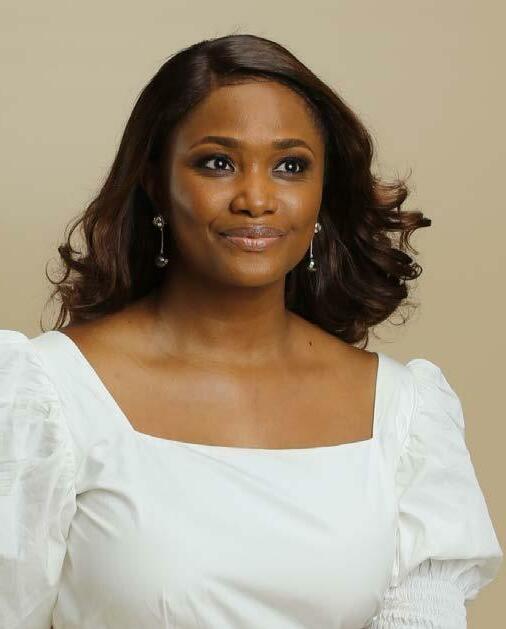
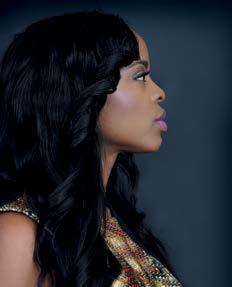
through this year’s Independence Day issue, I am reminded of last year’s officially announcing me as Editor of this insert magazine, TheWill DOWNTOWN.
Reading
I can only give all the honour to the Creator of the Universe as in Him alone has every week’s issue been made possible. I have also been blessed with a fantastic team of writers, contributors, page planners, social media team, an art director, and photographers; without all of whom, we could not have produced such great work every week. Thank you to the publisher for trusting me with this project.
To you who have stayed through my quest for perfection, I say: ‘Thank you. Thank you for putting up with the late nights and sometimes outbursts of passion for work. To teammates—current and previous— that I have spoken to in ways that may have been stern, it was not my intention. As you will find out, passion and striving for perfection equals heightened expectations, which may come across as harsh.
As we push on to bring you, our dear readers, your weekly dose of lifestyle at its best, I would also like to thank you for your constant support and encouragement. Thank you to my family and friends, who have been a massive part of this journey!
This issue is packed with great content specially curated for you. We discuss Nigeria as ‘The Giant of Africa.’ Do we still hold that title?
Our food page displays local meals that I promise you will not recognise as our traditional meals. As they say, the food went to Harvard. The beauty page shares some tips for transitioning from relaxed to natural hair, while the movie review page suggests patriotic movies for you to watch over the long weekend.
My journal recounts a tale from years ago as a young Editor. An incident while we planned last week’s issue triggered my memory. You’ll enjoy it.
Our cover personality, Folarin Falz Falana, shares his position on where we are today as Nigerians and what the youth really want from the government. It makes for an enlightening read.
Happy Independence, Nigeria!
Until next week, enjoy your read.
AUSTYN OGANNAH
PUBLISHER/EDITOR-IN-CHIEF
Editor: Onah Nwachukwu @onahluciaa
Editor-at-Large: Chalya Shagaya
Writer: Kehindé Fagbule
Graphic Design: Olaniyan John ‘Blake’
Social Media: Oladimeji Balogun

Guest Art Director: Sunny Hughes ‘ SunZA’
Photography
EVEN


 Odun Ogunbiyi @oddbodandthecity
Odun Ogunbiyi @oddbodandthecity
Contributing Editor
Odunayo Ogunbiyi is an ex pharmacist with a passion for food and pampering. Writing about her exploits wherever in the world she may find herself is just her way of staying sane in this zany world.
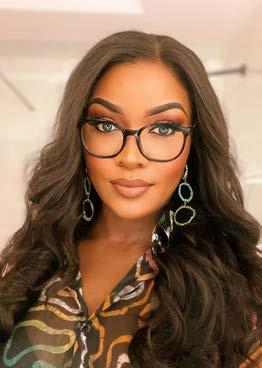
Boluwatife Adesina @bolugramm
- Contributing Writer
Boluwatife Adesina is a media writer and the helmer of the Downtown Review page. He’s probably in a cinema near you.
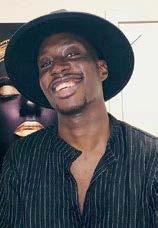

David Nwachukwu @ebube.nw

- Contributing Writer
David Nwachukwu has always been immersed in fashion from the age of 10, watching a Dior by Galliano show on television. His work in fashion stretches across media, marketing, brand communications as well as design. As a fashion & lifestyle journalist, David has tracked key industry data for various publications including Industrie Africa, Culture Custodian, Haute Fashion Africa, and HELLO! Nigeria. A Geography graduate from The University of Lagos, David consciously aligns this background in environmental advocacy and sustainable development with the need to promote a more ethical fashion ecosystem. He currently oversees strategic communications at Clean Technology Hub.
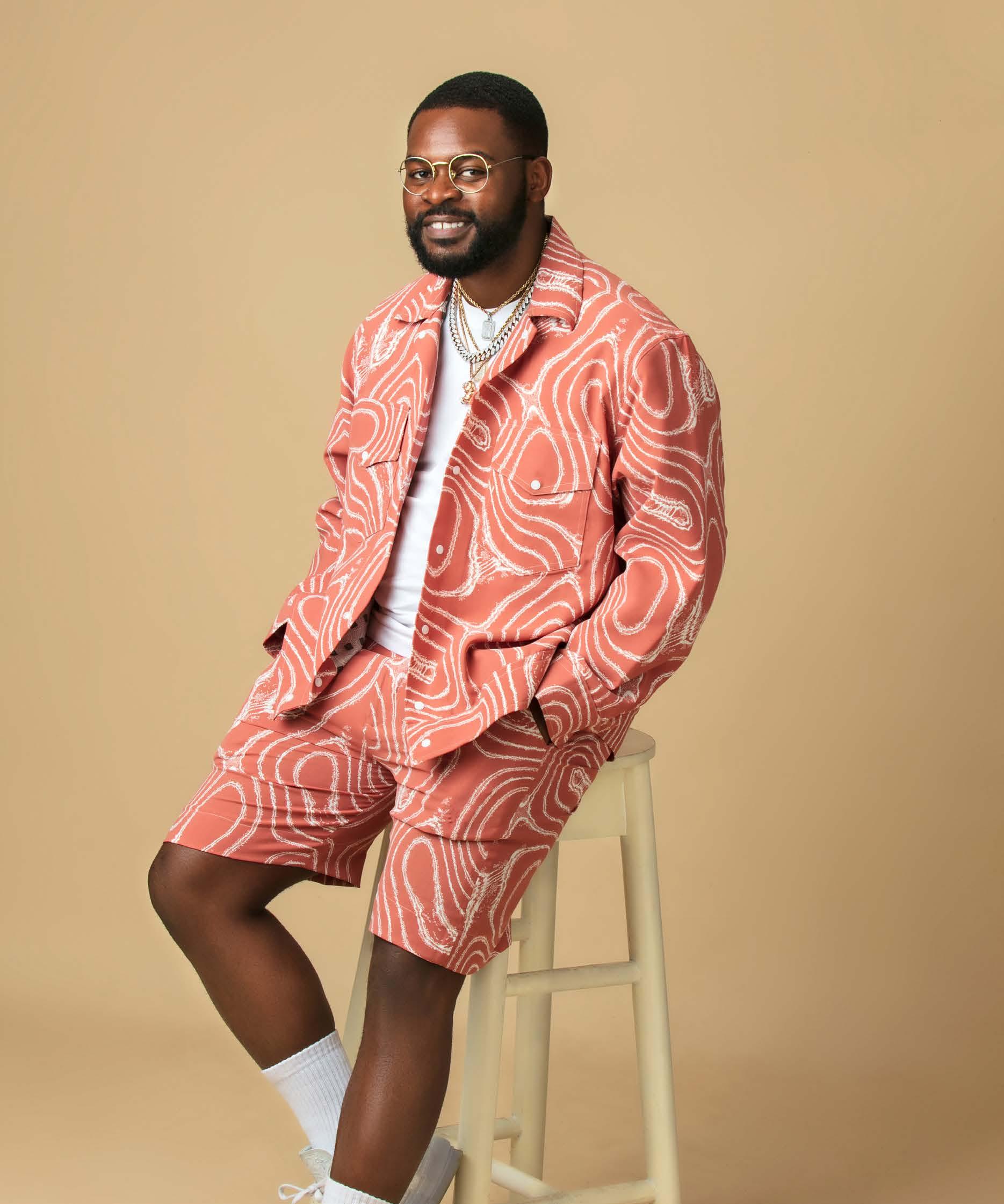
Dr May Ikeora @mayikeora
Dr May Ikeora is an academic researcher, Author, and ex-beauty queen cum entrepreneur. She is a specialist in Human Rights, Gender and Peacebuilding, consulting for organisations like the United Nations, African Union, World Bank, Mission89, Governments and the Kofi Annan Peacekeeping Institute. She gained a PhD in Law from the University of Hull, UK, and has received numerous awards for her work, including that within African diaspora communities in the U.K. received at the House of Lords. As an entrepreneur, May founded a cosmetics company called L’Avyanna, based in the U.K. and Nigeria and possesses numerous beauty licenses from the U.K.
WHAT YOU SAID
INSTAGRAM



This is beautiful. They were very intentional about building their love. Lovely cover shot! Temperature is so calm and warm with cozy vibes
VOL 2 NO. 40 • OCTOBER 02 - OCTOBER 08, 2022 PAGE 2 THEWILL DOWNTOWN • www.thewilldowntown.com www.thewilldowntown.com thewilldowntown thewilldowntown Onah Nwachukwu @onahluciaa + 2349088352246 Read every word. I love mature love. There are both such intellectual people and big on emotional awareness. It’s a beaury to see. I wish them well
THE
OF AFRICA?
FASHION STYLE FOR THE CULTURE: AFROCENTRIC BRANDS WE LOVE
COVER ACCORDING TO FOLARIN FALZ FALANA, “THIS IS STILL NIGERIA”
ONAH'S JOURNAL MY GOD! HOW DO I SECURE ANOTHER INTERVIEW WITH ROGER FEDERER?
@ugonna_a
@ulu_nnah
@philchikejr
CONTENTS INDEPENDENCE DAY REVIEW 0706 16 14 15 12-13 DOWNTOWN ZODIAC MOVIE REVIEW DOWNTOWN EATS THE SCENE DOWNTOWN BEAUTYCULTURE ARE WE
STILL
GIANT
FOREVER THE ‘PEOPLE PERSON’…LIBRA THERE’S NO WAY THESE ARE LOCAL DISHES HER NETWORK HOSTS FIRST ANNUAL SUMMIT: THE POWER OF COMMUNITY TRANSITIONING TO NATURAL HAIR EDITOR’S NOTE 8 04-05
03
Cover Image, Pages 2, 9(2) & 11 : Kola Oshalusi For Insigna Media @insignaonline Wardrobe: Falz's Clothes
My God!
How am I Going to Secure Another Interview with Roger Federer?

Wehad interviewed our cover personalities for last week’s issue about seven weeks before because I figured they’d be too busy planning the wedding in another month, and I wasn’t willing to take any chances. A few weeks after the interview and photoshoot, I received an email from one of my teammates informing me that he had been robbed and his phone had been stolen. I didn’t even remember the interview then; I only asked him if he was ok. As for the interview, as far as I was concerned, it was already transcribed and secure. However, a few days later, it crossed my mind to make doubly sure, so I placed a call to my other teammate and asked who had the interview. I almost passed out when he said they had split it between themselves for faster transcribing. My next words were,” Oh, my God! Is M.I’s interview safe?” Luckily, as I always tell them, he had already saved it OTA (over the air), so it’s safe somewhere if anything happened.
I was calm again, but that incident took me back eight years to when I had an important interview with recently retired 20-time Grand Slam tennis champion, Roger Federer.
It is a rather interesting story: In 2014, I was privileged to have been selected among a group of luxury lifestyle magazine Editors from around the world to interview the tennis champion. Even more humbling was that I was the only person chosen from Nigeria and West Africa, so as you can imagine, I didn't want anything to go wrong. We arrived at the prestigious Le &—Moet and Chandon’s exclusive Orangerie in Epernay, France, and after some refreshments, I sat waiting my turn. A young-looking French man walked up to me, calling my name. There’s an unspoken
acknowledgement, and he tells me, “We are ready for you now.” I walked behind him to the Residence Trianon, where another lady met and read me the rules—dos and don’ts before the interview. “This way, please,” she said when she was done. The door to another room opened, and standing in front of me in an exquisitely tailored suit was Mr Federer.
We exchanged pleasantries and then proceeded with and finished the interview.
I returned to the waiting room for some more food and champagne while other Editors got their turn, and then I decided to listen to the interview. I played it back, and, no voice. It was blank!
I promise you my spirit jumped out of me. I couldn’t breathe. All I was thinking was, ‘my God, how am I going to secure another interview with Roger Federer? We all had our time slots.’ I must have looked dead because my chaperone ran to me asking, “Onah, Onah! Is everything ok?” I didn’t want to alarm her yet, so I feigned a smile
she saw right through. “You look like you just saw a ghost, and you were about to fall and pass out right here, so something is wrong,” she said. I convinced her I was fine, while in my head, I was saying, ‘please go away, I need to figure out what just happened with my recorder.’ I said a short prayer asking God to help me( I made some promise) and then turned the recorder back on. Trying to stay calm, I clicked on the file again, and a voice that suddenly sounded like the sweetest voice I had ever heard came from the speakers of my recorder. It was Roger Federer’s.

PAGE 3 THEWILL DOWNTOWN • www.thewilldowntown.com VOL 2 NO. 40 • OCTOBER 02 - OCTOBER 08, 2022
ONAH'S JOURNAL
Afrocentric Brands We Love
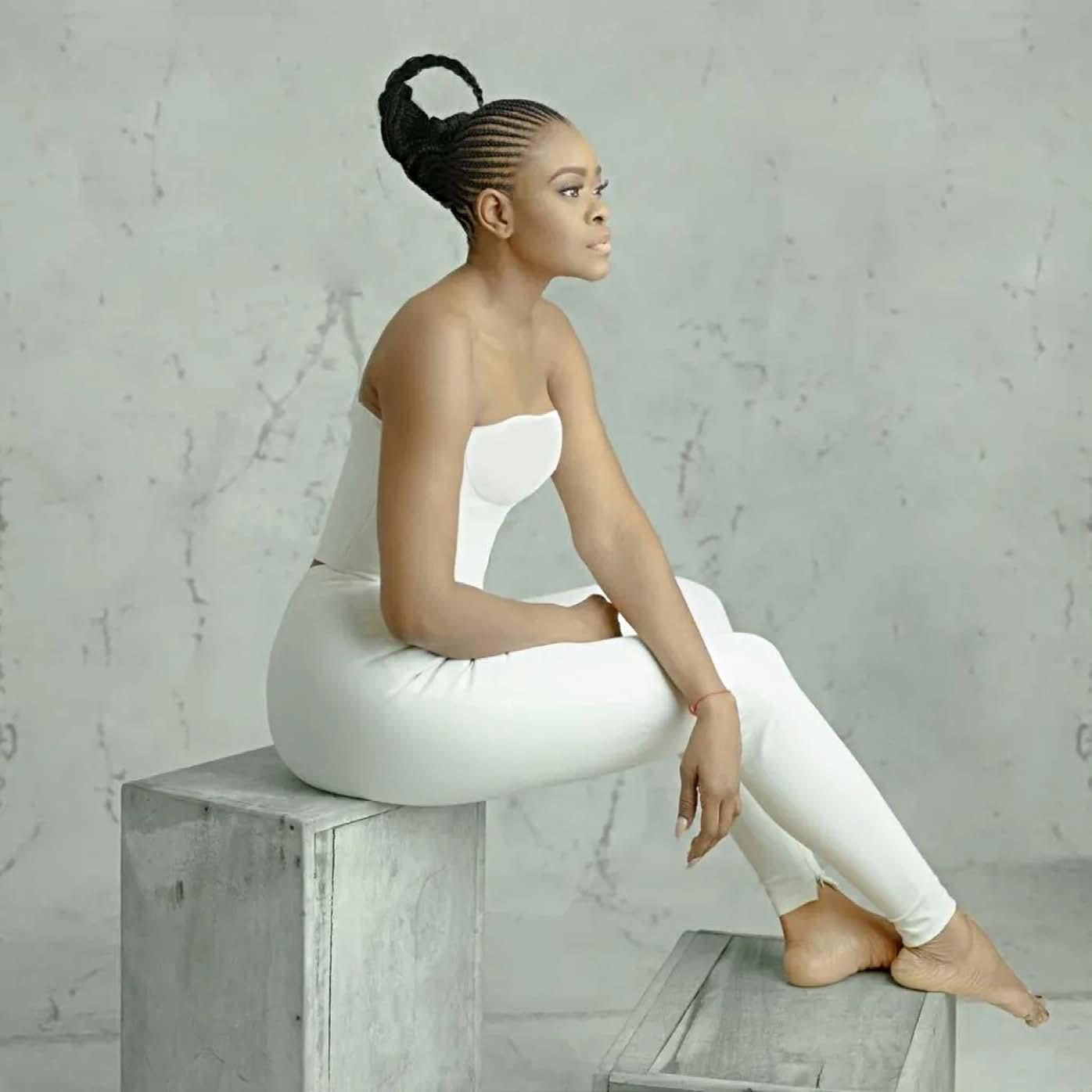 BY DAVID NWACHUKWU
BY DAVID NWACHUKWU
The beauty of fashion will always lie in stories conveyed through clothes. As Africans, storytelling is an integral part of the culture. The various ways we express ourselves with clothes have long remained a strong marker of culture across the continent, either as a form of celebration or a means of identifying communities. In today’s fashion landscape, consumers are drawn to items that mean something, and African fashion brands are blending global appeal with a reverence for indigenous cultures. Proudly wearing their heritage on their sleeve, we spotlight eight Afrocentric labels on our radar.
ITUEN BASI
NKWO
Nkwo Onwuka has always championed African design codes, with her clothes paying homage to the continent’s nomadic tribes. Through her eponymous label, she has been able to blend sustainable production practices with an intricate design process that is both luxe and accessible simultaneously. Nkwo has been a sustainability pioneer with her cutting-edge work for most of her career. Her process involves age-old African design techniques, including hand dyeing, weaving, beading, repurposing and reconstructing. In recent years, she’s pioneered textile innovation during her experimental studio sessions and developed the Dakala Cloth, a fabric made through a modern ‘strip weaving’ technique that mirrors handloom woven cloth but with a distinctively African feel.
DEOLA SAGOE
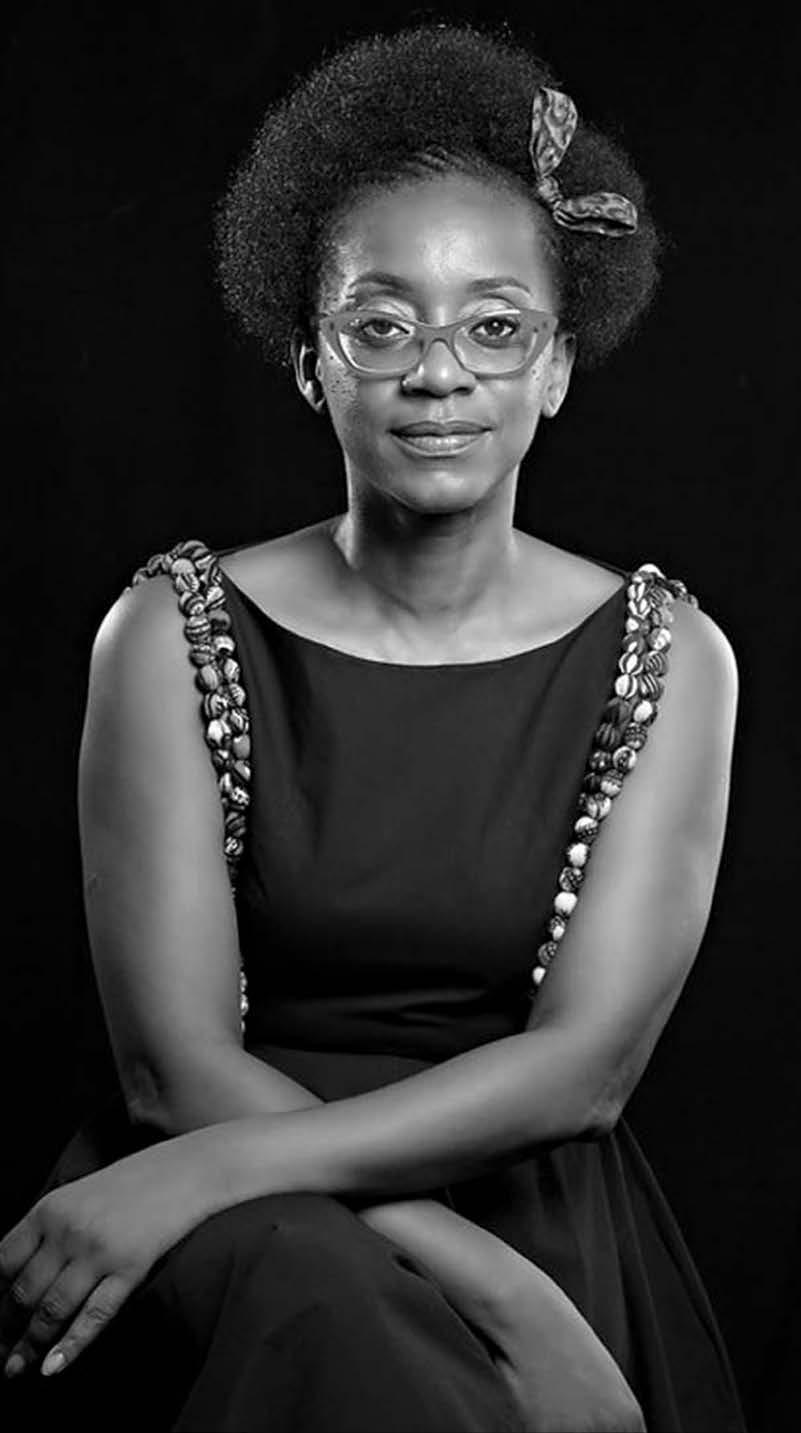
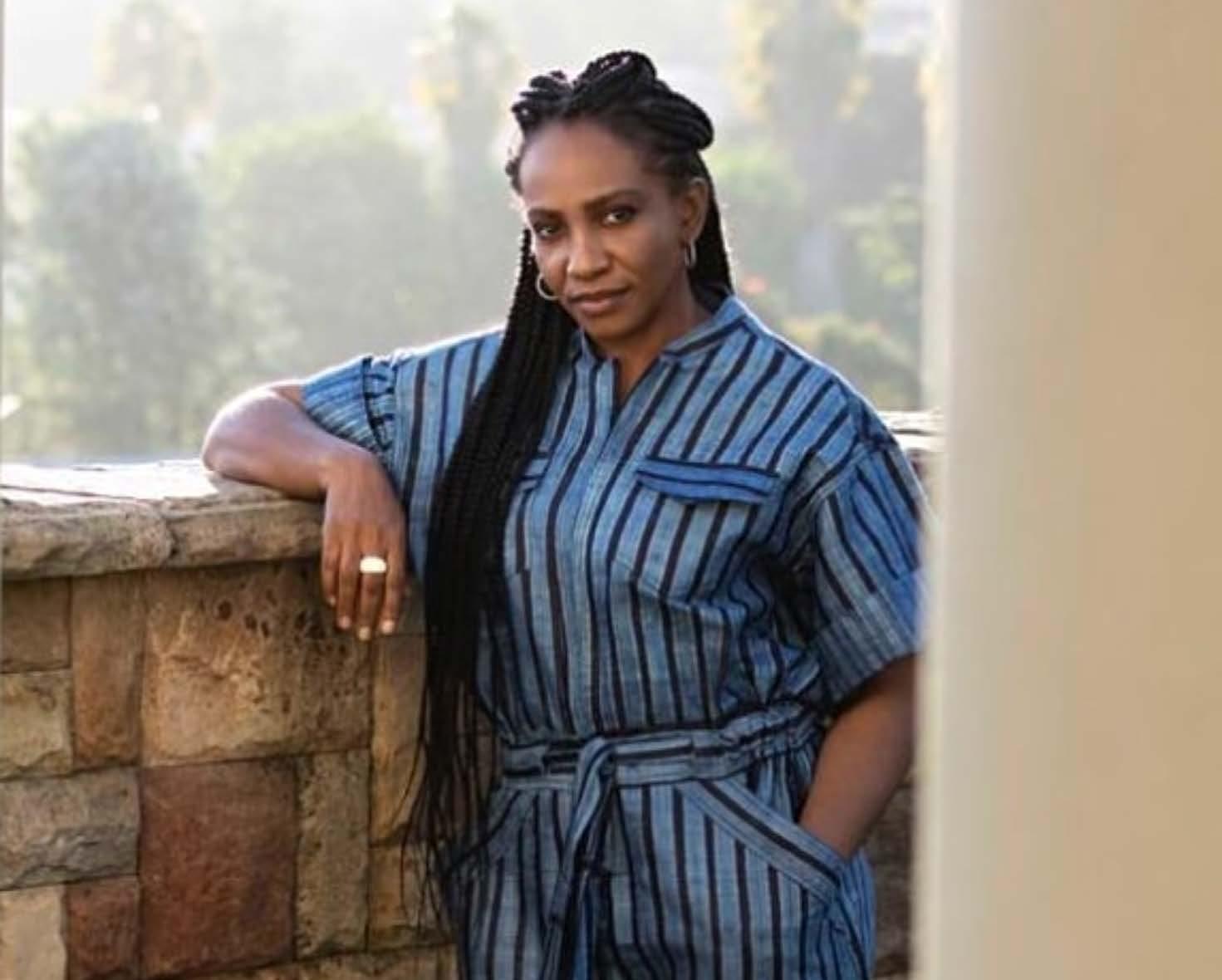
Since her breakthrough 1998 collection, Nigerian design legend Deola Ade-Ojo has worn Africa on her sleeve on every major international catwalk. Drawing on texture, colour and architecture to create beautiful couture pieces, the label has long been known to highlight indigenous stories. The most notable one remains her signature Komole fabric, one of the industry’s most iconic achievements in textile innovation. The fabric can be described as an innovative weave of aso-oke, an integral part of Yoruba culture which is then ‘shot-through’ silk. Continuously improved and perfected over the past 25 years, it has now become a staple in most of the label’s collections, especially in her cult-favourite bridal wear range, which celebrates the beauty of the classic Nigerian bride.
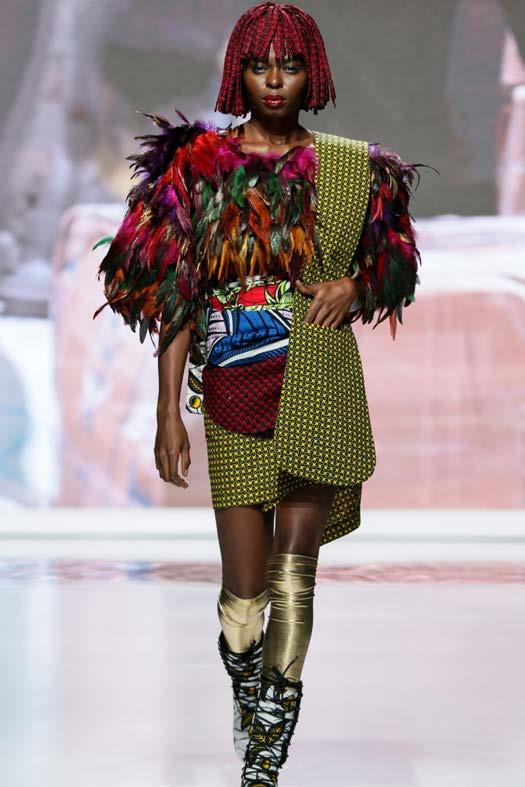
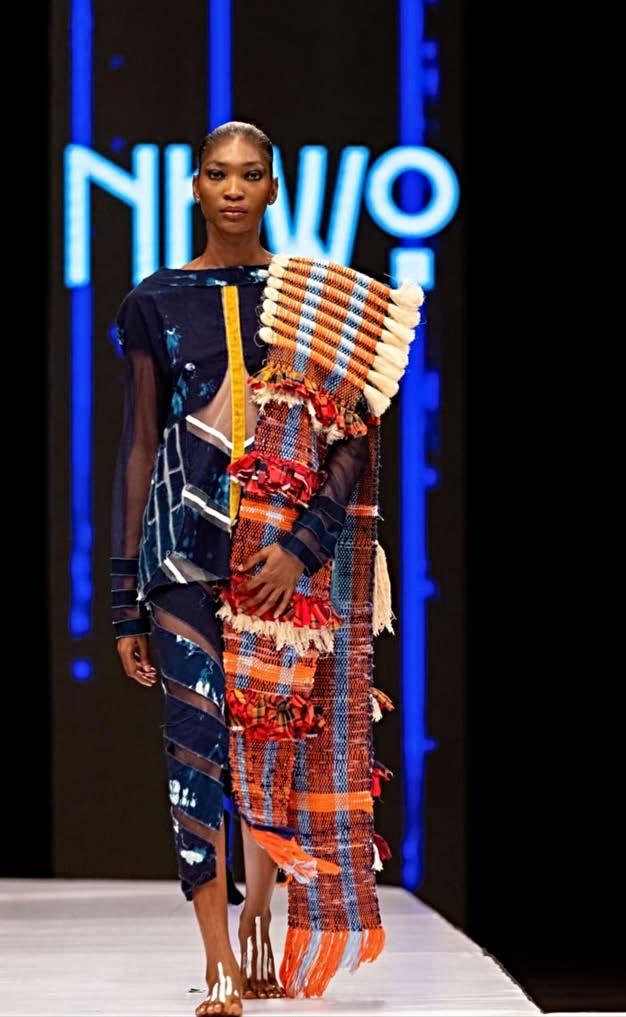
Easily one of the most recognizable names in Nigeria’s fashion industry, Ituen Basi’s love for culture has never wavered. Since returning to Nigeria in 2009 after successfully conquering the bridal wear market in London, she has churned out collection after collection putting native cultures at the forefront of each one. From the bustling nature of Lagos metropolis to the rich embellishments and flair of the South Eastern and Southern parts of Nigeria, she draws on key elements that make her clothes feel just like home. It’s no surprise that her influence is seen in many new labels operating today, new talents that have passed through her tutelage and hold the same respect for heritage.
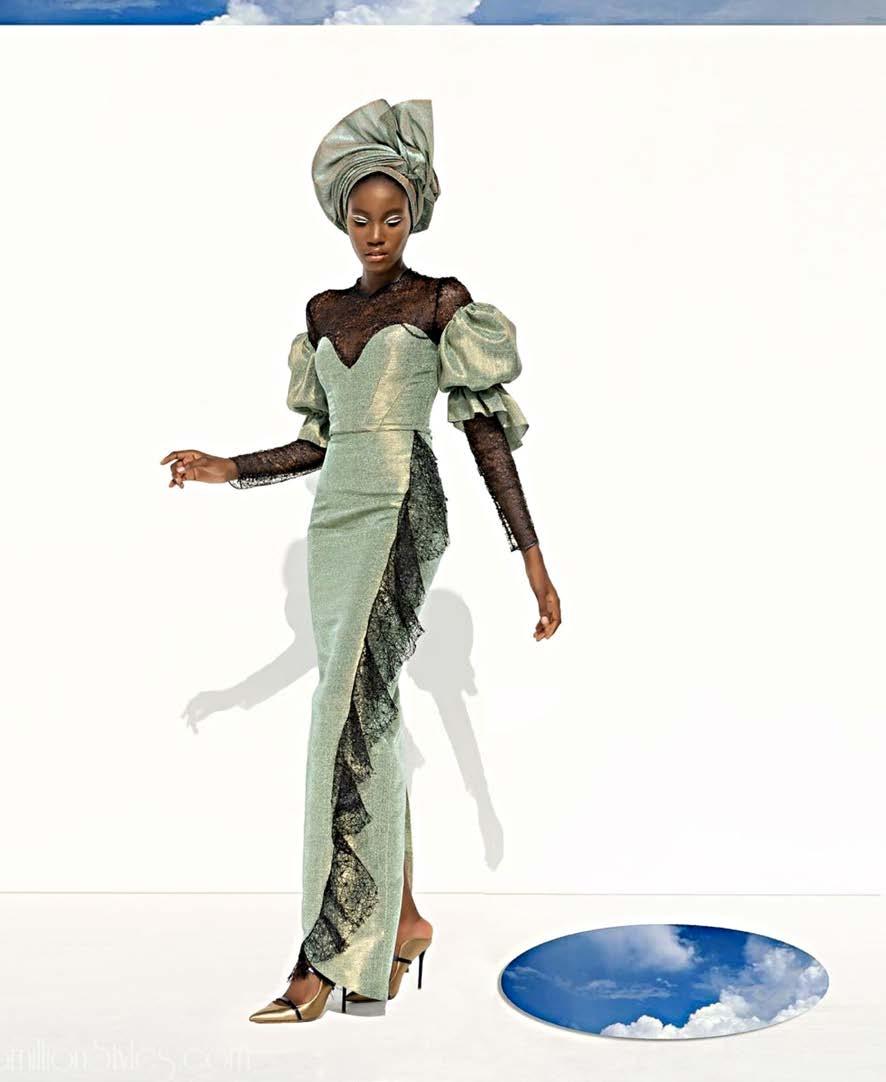
VOL 2 NO. 40 • OCTOBER 02 - OCTOBER 08, 2022 PAGE 4 THEWILL DOWNTOWN • www.thewilldowntown.comTHEWILL DOWNTOWN • www.thewilldowntown.com FASHION
MAKI OH
Like most great designers, Maki Oh’s creative director Amaka Osakwe utilizes storytelling to create memorable collections that become key parts of her clientele’s lives. Launching in 2010, she has cited her inspiration for creating the label due to learning about the cross-cultural similarities of dyeing fabric among African and Asian creative communities. Her luxury offerings sport a stunning blend of hand-painted techniques and various hand-dyed methods with textile motifs which are thoughtfully applied onto mediums such as silk with hot wax before being sent to artisans for dyeing in Osogbo, a southwestern city in Nigeria preserving ancient adire pit systems. It’s through processes like these that the soul of her African heritage is seen through clothes.
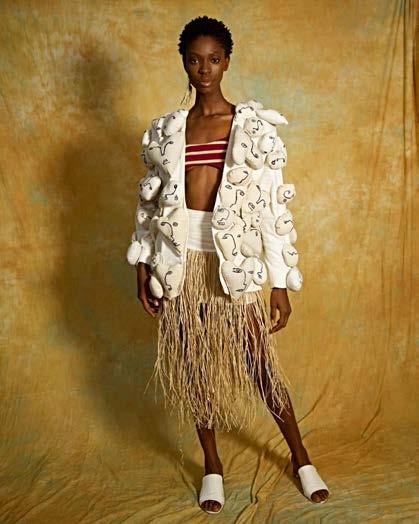
PEPPER ROW
West African design methods form a key part of Pepper Row’s design ethos. The creative director, Omafume Niemogha, creates collections built around empowering narratives and traditional methods of textile creation while still maintaining a modern worldview. You can see this in the way her clothes (and, more recently, accessories) are meticulously crafted using ethical weaving, dyeing, and hand-finishing against the repurposed fabric. Her 2022 collections saw vintage Southern Nigerian silhouettes brought back to the fore with a millennial facelift.
CYNTHIA ABILA
The Abuja-based womenswear label prides itself in fiercely supporting women artisans across the country as part of its brand operations. This love for changing the economic stories of Nigerian women extends to the clothes, and the stories of power told within each garment. Using homegrown textiles like raffia, akwete and aso-oke, the brand creates bold, energetic clothes that help each wearer tap into the true strength of being African. This is heavily seen in the way she uses inscriptions to pay homage to cultural practices that were mostly forgotten, highlighting the stories kept sacred by women through centuries.
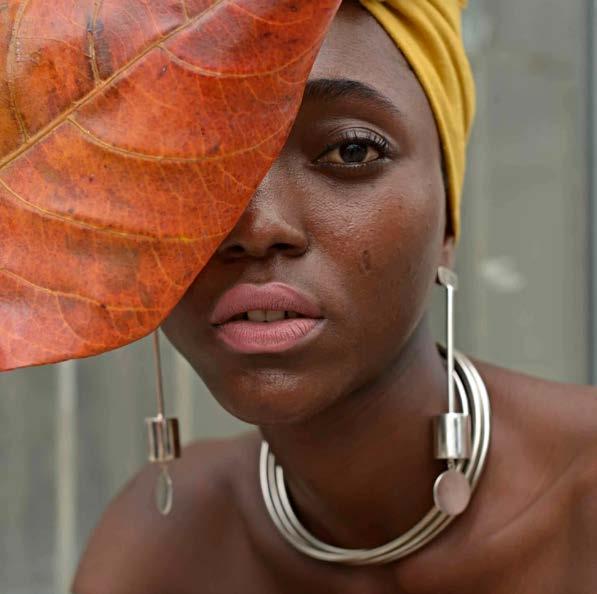
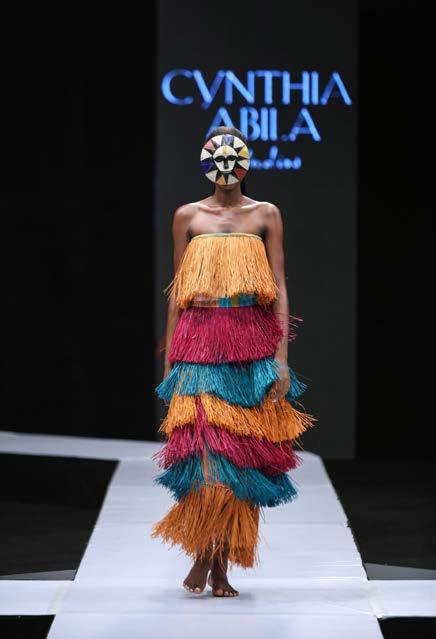
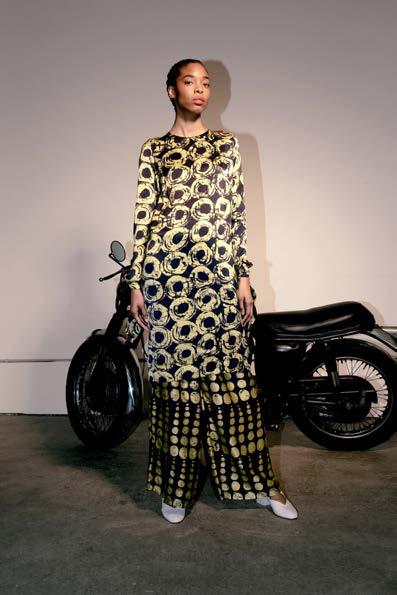
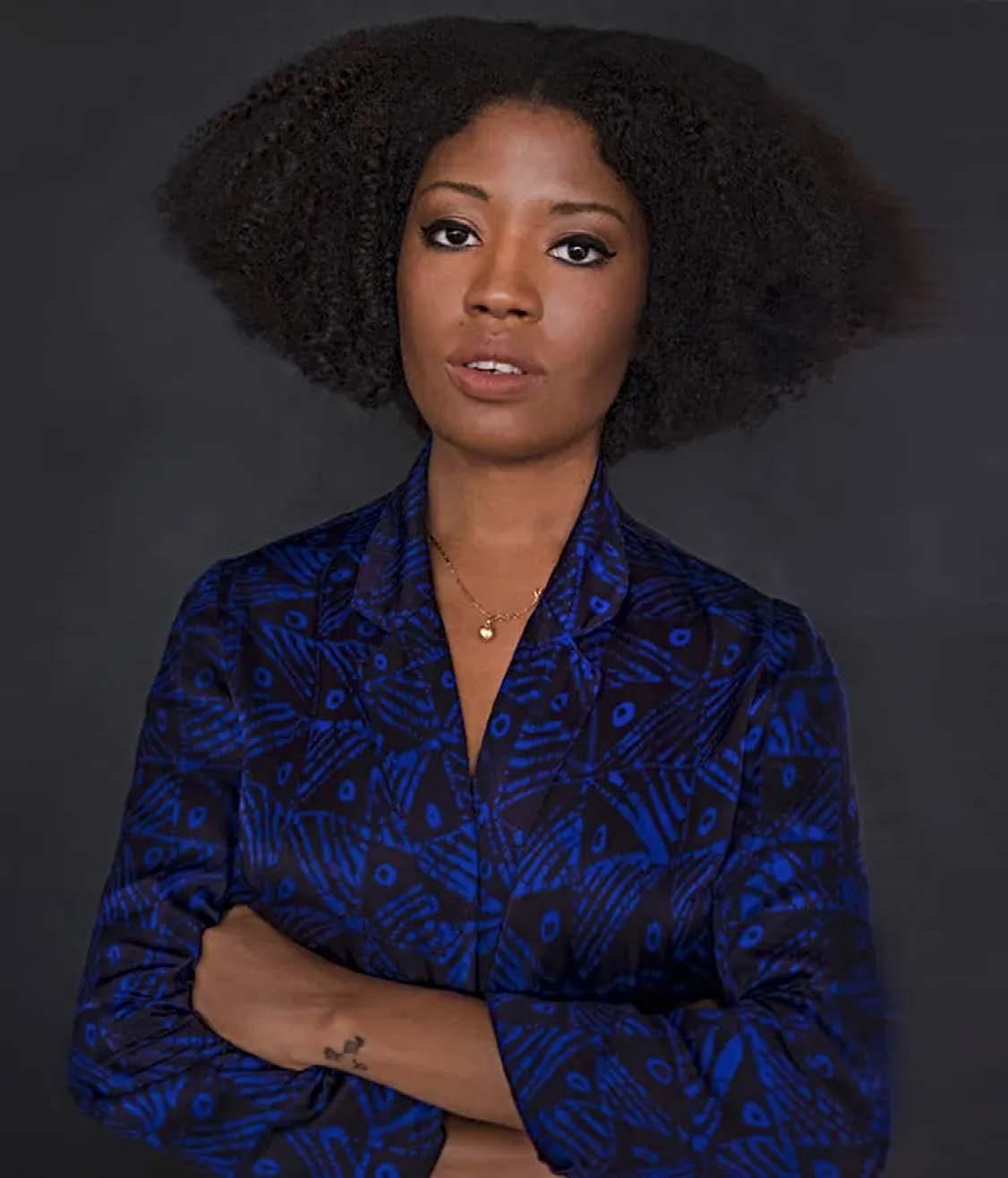
FASHION
SHEKUDO
Initially launching her luxury accessories label, Shekudo, with co-founder Shetu Bimpong in Sydney, Australia, Akudo Iheakanwa moved her operations to Nigeria, inspired by the need to revive local artistry and champion production within the country. Akudo’s design philosophy has always placed sustainable, socially responsible manufacturing practices at the centre by spotlighting overlooked Nigerian artisans. Shekudo’s unique designs tell authentic stories that highlight culture with the use of eco-friendly textiles across a range of bags, footwear and jewellery. For instance, the use of the laborious 500-year-old weaving practice of aso-oke to create contemporary accessories. She also employs local woodwork and silver smith artisans to construct wooden heels and rework metal into fabulous jewels.
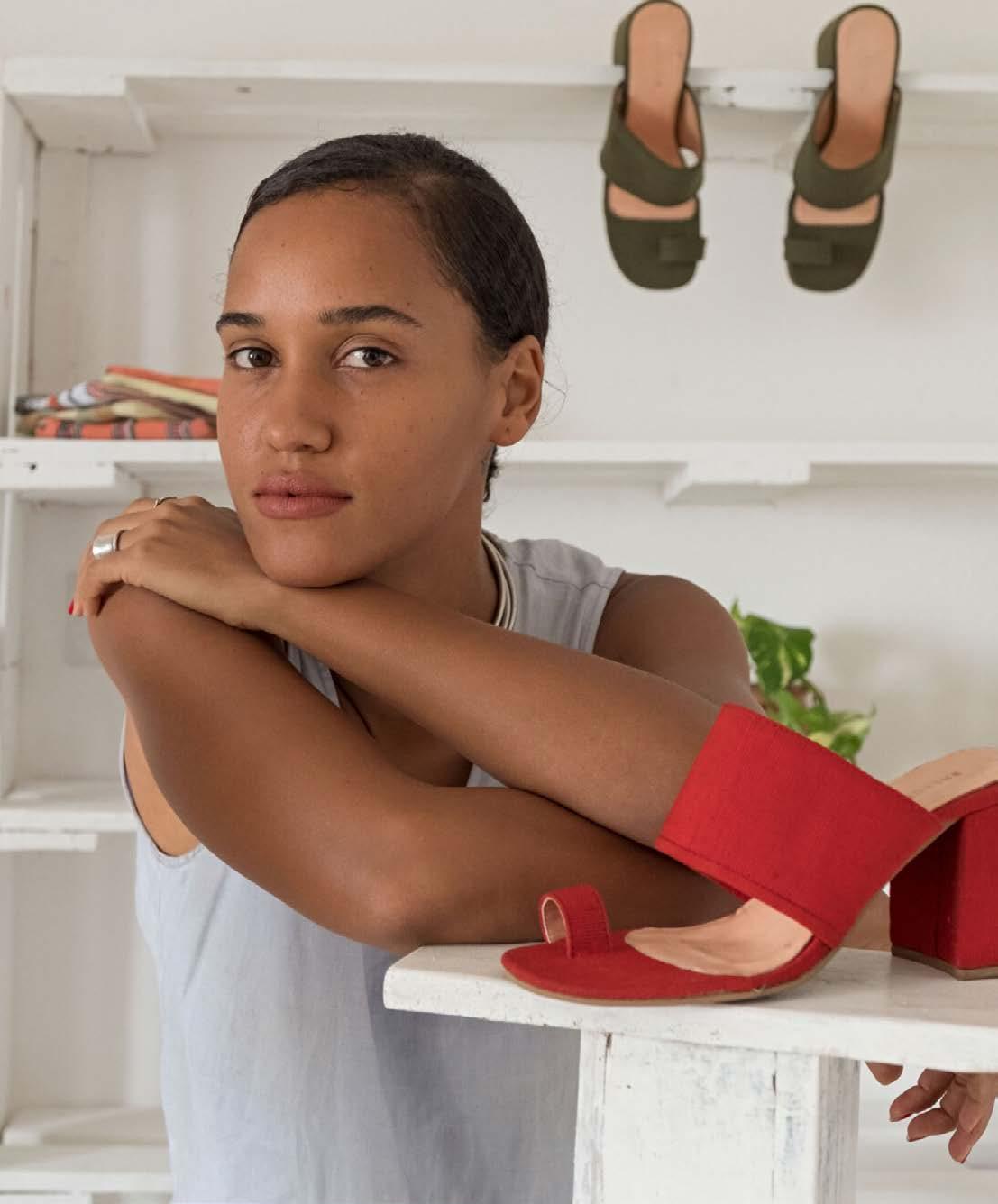
MARTE EGELE
When Beyoncé was spotted holding onto her blush pink Marte Egele leather handbag a few years ago, it was not just a victory for Nigerian craftsmanship but also evidence that creative director Uche Egele was a global player. It’s not hard to see why her leather confections have been so appealing: made primarily by hand, her unique designs are a result of the meticulous craftsmanship of the African artisans she works with. Her signature handbags have an authentic, artistic look and feel, with the silhouettes boasting geometric patterns, focusing on functionality without compromising style. It’s this clever eye for mixing art with a commercial appeal that has made Egele one of the most promising design voices to emerge from our fashion industry.
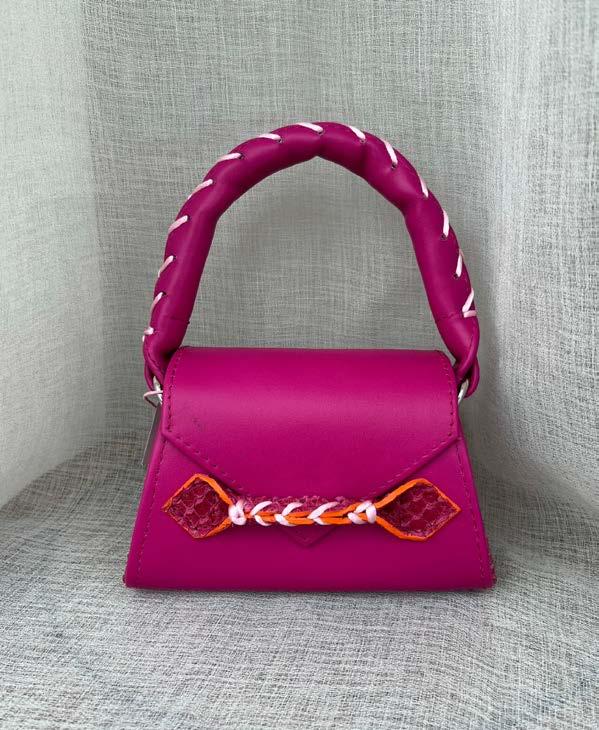
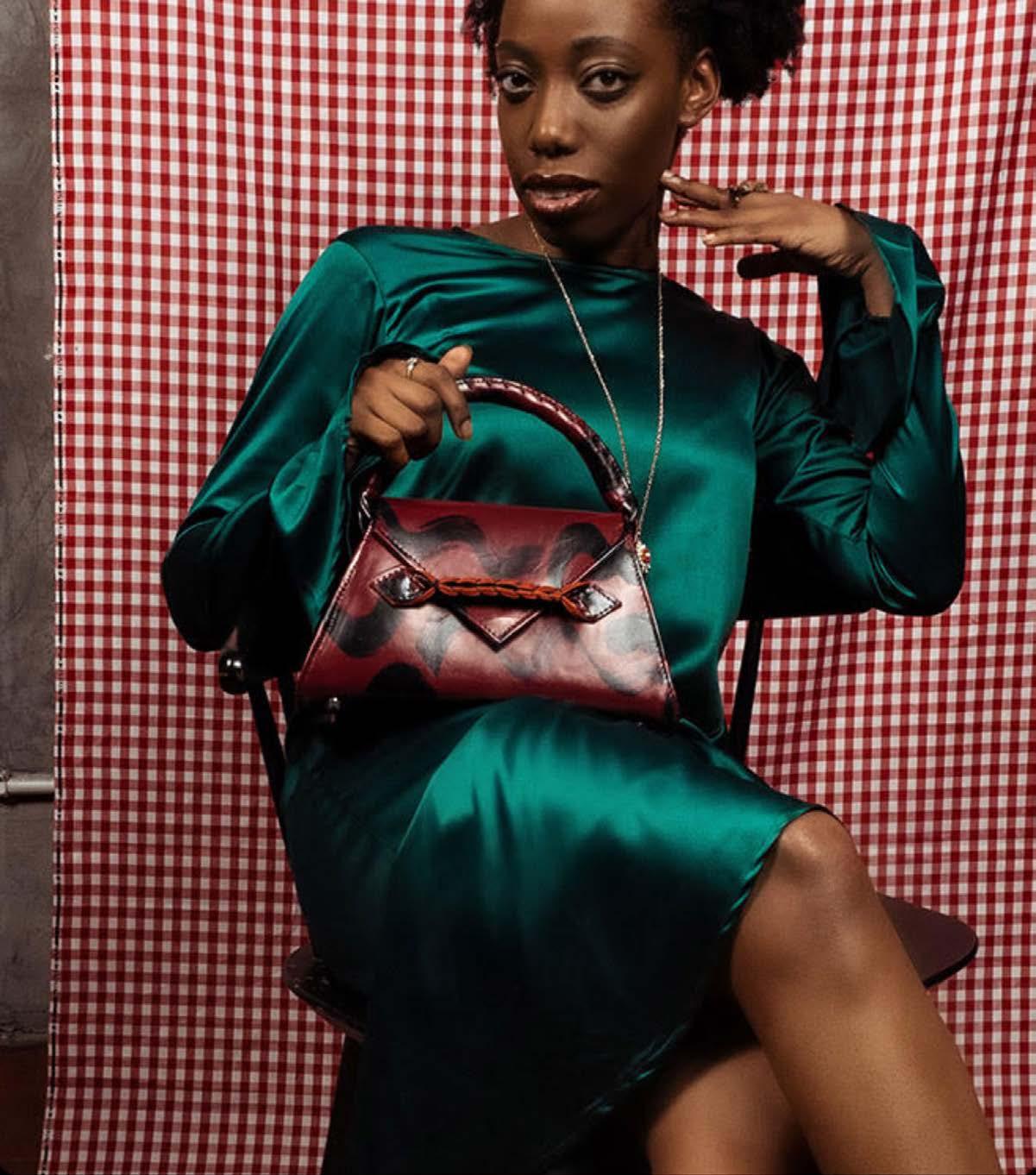
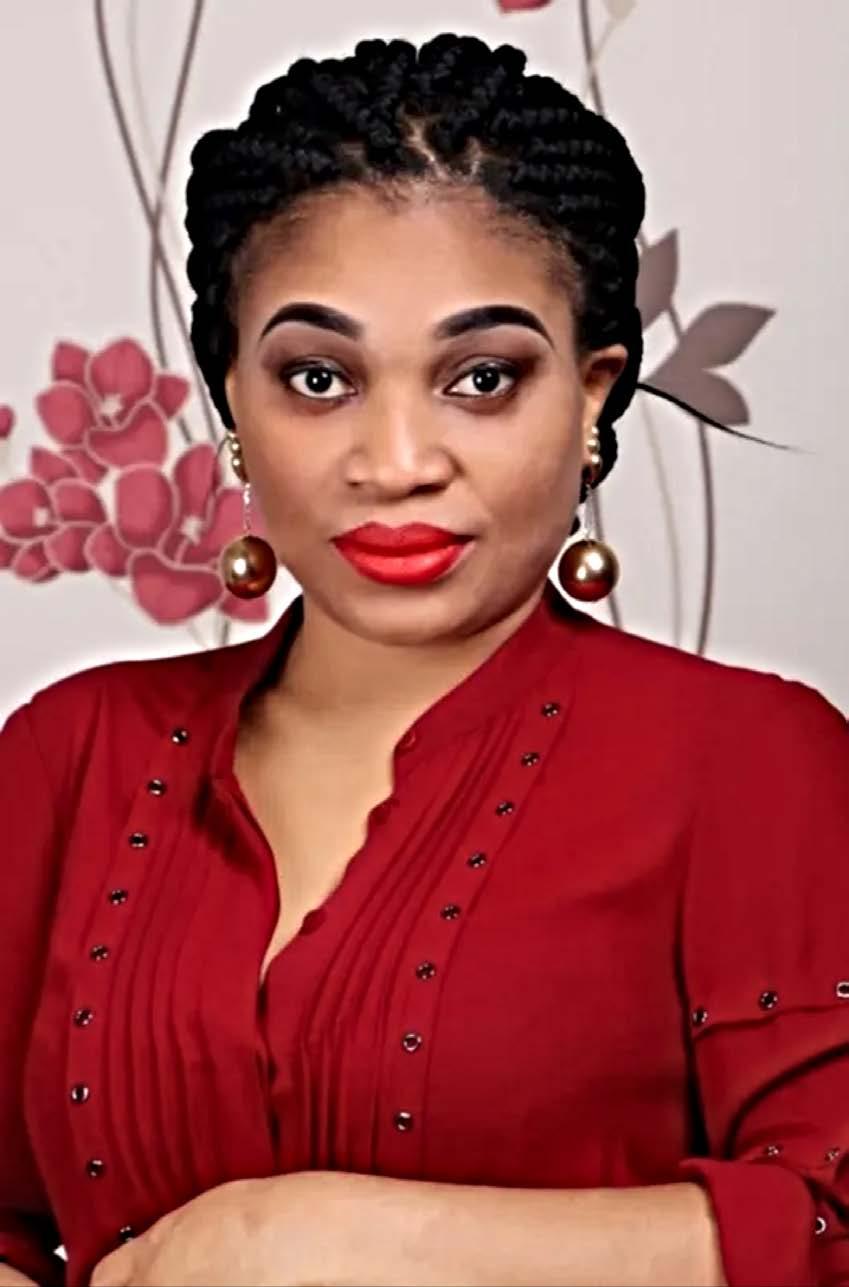
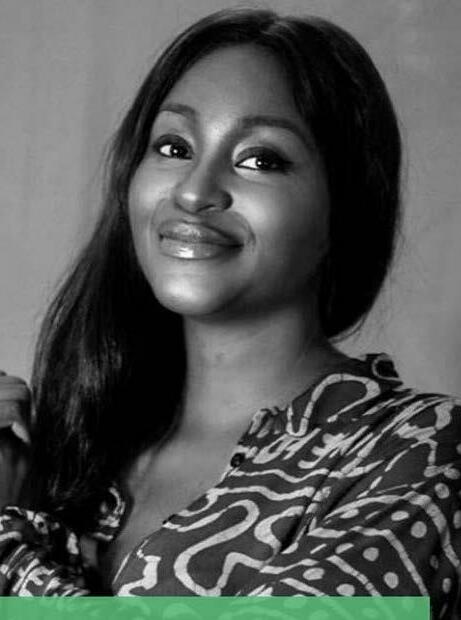
PAGE 5 THEWILL DOWNTOWN • www.thewilldowntown.com VOL 2 NO. 40 • OCTOBER 02 - OCTOBER 08, 2022
CULTURE
Are We Even Still The Giant of Africa?
Time to Focus on People
BY KEHINDÉ FAGBULE
Asa thinker, I ask a lot of questions. I’ve always done that. When you speak to older people a lot, you begin to question things in your subconscious. There are things that you have been fed growing up, and as you grow older, you begin to wonder how they even came about. Sayings like “we are the giant of Africa.” How?
Despite the country’s very low ranking in the Human Development Index and its status as one of the most corrupt nations in the world, Nigeria is often referred to as the Giant of Africa owing to its large population—there are over 200 million of us making Nigeria the most populous black nation in the world—and economy—the World Bank considers us to be an emerging market. Nigeria’s status as a regional power in Africa, a middle power in international affairs, and an emerging global power has been aided by a few factors. We can analyse some of these factors and trace their origin all the way back to the pre and post colonialism era, but we wouldn’t be the first to have our space encroached by the British, nor would we be the first to gain freedom.
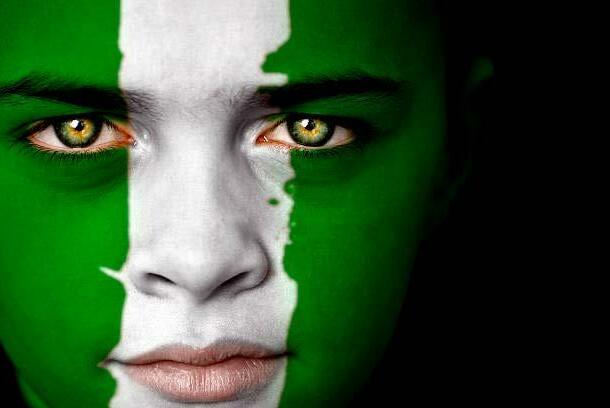

Although her booming economy—long before whatever it is we have now, people used to be soft was mostly aided by natural resources such as oil and mining, Nigeria’s biggest asset has always been human capital in the form of its teeming population. Even though the focus has always been on minerals and other natural resources, especially oil, Nigeria’s biggest strength for economic growth has been its people. Lord Lugard was aware of this as he conceived the rather ambitious idea of amalgamation in 1914—to join the Northern and Southern Protectorates as one. Much like China, with over 1.4 billion people, and the USA, with over 300 million people, one can see just how closely linked the population is to the economic
development of their respective societies. The quantity, quality, structure, distribution, and movement of a population can help or hinder the rate of economic development. A developed country with low population density and a low percentage of employable people needs an increase in population in order to keep up with economic development—where we used to be. On the other hand, for an underdeveloped country with a high population density and a high percentage of employable people, any increase in population will be detrimental to its economy—where we presently are. In fact, it wouldn’t be such a hot take to suggest that we are in the predicament we are in today because instead of developing people in terms of quality education—formal or vocational—and empowerment, we were fixated on oil, not as a cash cow to reflow money back into the economy but as a means to a corrupt end.
Nigeria’s reputation as Africa’s kingpin transcends the economy. Although the economy played a huge part in putting our first foot forward as an African giant, as aforementioned, our status, outside of our finances, became twice as tall through art. Another advantage of a high population density is how much impact it has on arts, culture and entertainment, which Nigeria happens to soar in flying colours over the years. With a leading film, music and fashion industry, and Lagos especially establishing
itself as Africa’s entertainment capital, Nigerians’ influence on black arts and culture is unrivalled. Our loud nature ensures that we tower over other countries, especially the ones around us.
A Nigerian doesn’t even need to have tasted a Ghanaian Jollof to come to the conclusion that the Naija version is better. It is with this sense of pride that we ooze whenever we visit other African countries or interact with other Africans on social media.
Even in sports, Nigeria is a respected brand. Despite the Super Eagles’ perpetual let-downs, they are still one of the best football nations in the continent, with the Super Falconet constantly blowing oppositions away to perennial Nations Cup titles.
Today generally, Nigeria’s best years are throwback moments. Are we still the giants of Africa? Look around. Is this what a giant looks like?
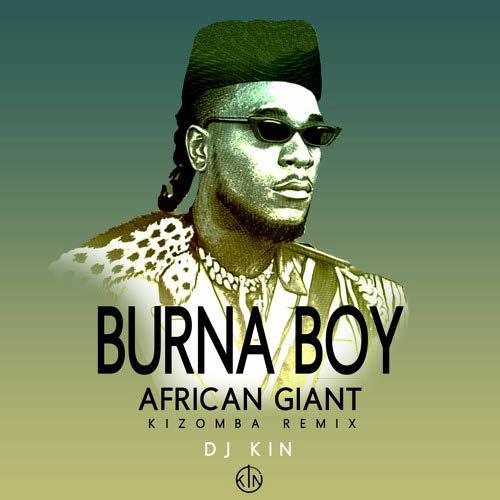
In this part of the world where uninterrupted power supply is still a fantasy, tertiary education is epileptic, the blood of Jesus is more likely to keep you safe than the police when bandits hijack your interstate travel, and has so much political tension, there’s not so much you can quantify as gigantic.
As we turn 62, we must take a rather introspective approach to nation-building. It is impossible to develop a country without paying attention to the ones who make it up. Right now, building human capital through people empowerment (not sharing souvenirs and calling it empowerment programmes) should be our main focus as we step into our new year. This coming year, we cannot afford to be too proud to learn from other African countries. We are far from where we ought to be as a nation, and ideally, our authority as the giant of Africa should have been revoked a while ago—Burna Boy can keep it.
VOL 2 NO. 40 • OCTOBER 02 - OCTOBER 08, 2022 PAGE 6 THEWILL DOWNTOWN • www.thewilldowntown.com
BY AKINTOYE DORCAS
Libra is the seventh house in the zodiac sequence. These people are very in tune with the earth and things around them and, as such, are great at keeping relationships. They are generally very good with people and have a gift for communication skills, making them natural negotiators. Due to their constant ability to remain reasonable in their dealings with people, those around them are confident their decisions always come from a balanced viewpoint.

Libras have a way of putting their points across; they do this in a charismatic way that even those who disagree with them cannot resist them.
Libras are the typical ‘people person.’ They usually make great first impressions, and being such good communicators makes them fantastic at networking.
Libras are also known to be very feminine and fashionable. This is attributed to Venus, the soft side in them and is expressed in everything Libras do, from home decor to personal grooming, even in the men. Did we mention they love to entertain and never dull moments with them?
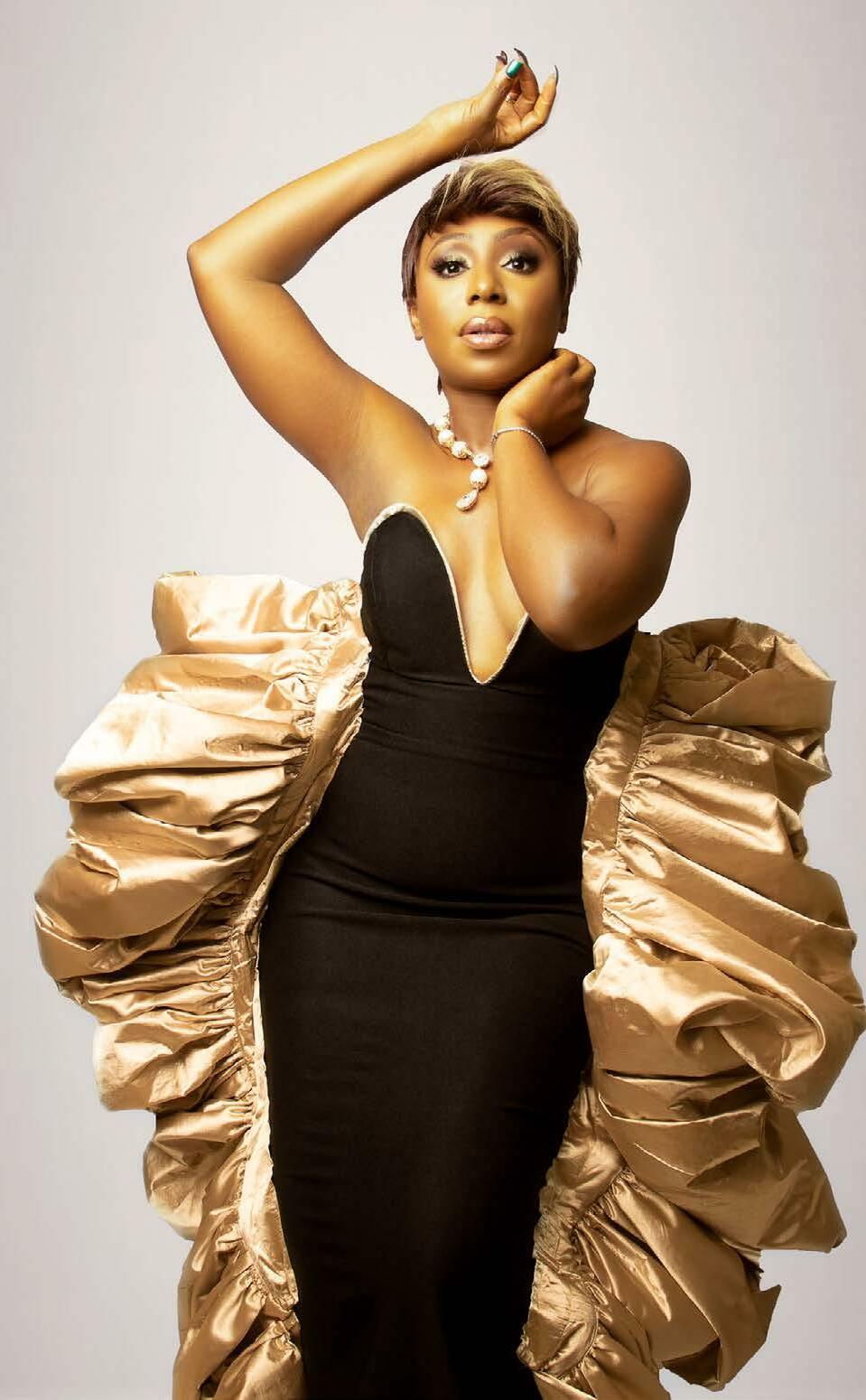
In the area of style, they cannot be ignored. A Libra’s style cannot go unnoticed and coupled with the fact that they are always well groomed and seen as tasteful, they always stand out.
Regarding love, Libras find it hard to commit until they find that one person they believe is their soul mate. When they meet this person, they give everything they have to them. Finding their soul mate usually makes Libras finally get into things relating to work and family with energy because they are now settled. Typically, Libras are great people to have on your side.
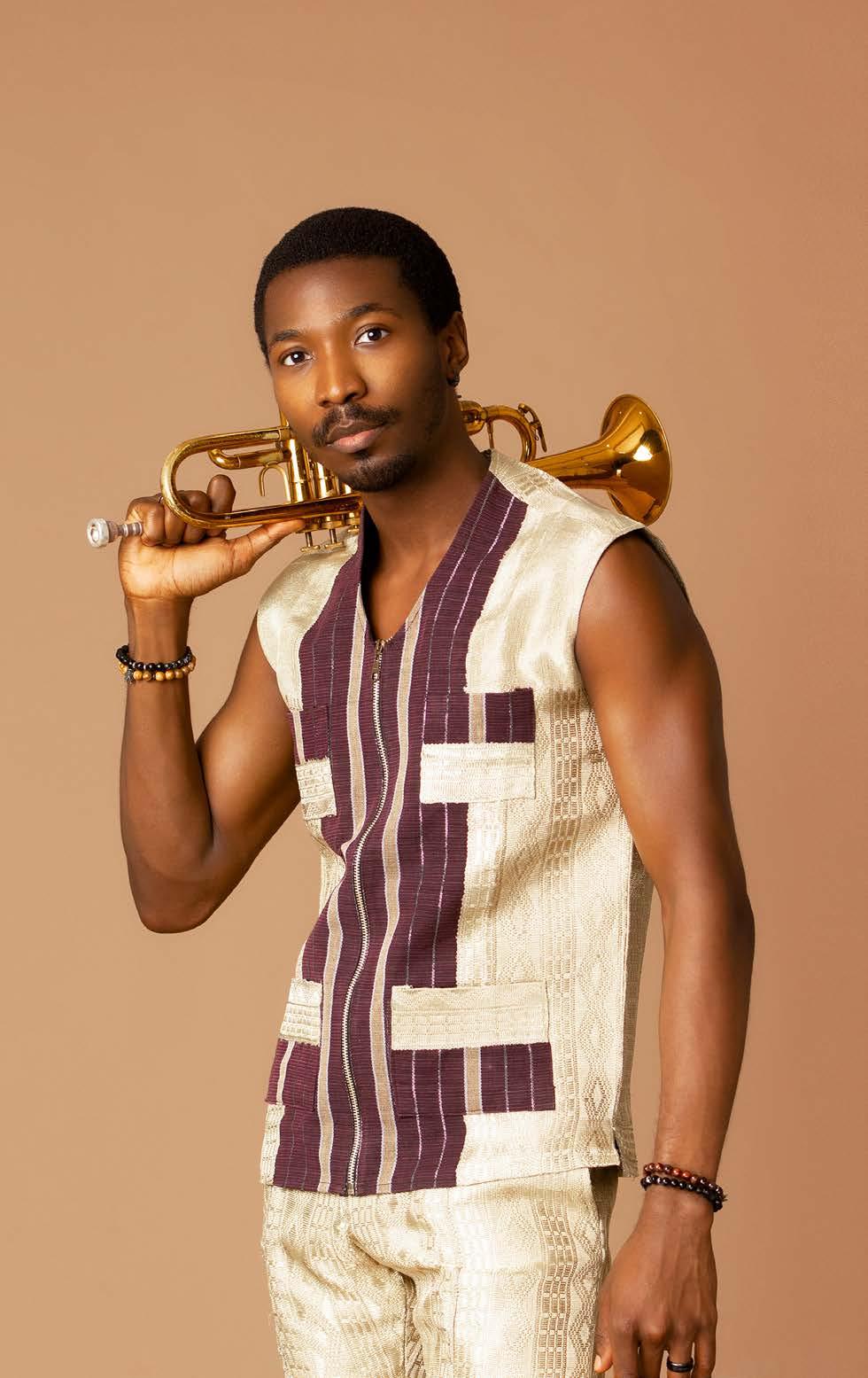 IMAGE FROM VECTEEZY
Madé Kuti
Dakore Egbuson-Akande
IMAGE FROM VECTEEZY
Madé Kuti
Dakore Egbuson-Akande
PAGE 7 THEWILL DOWNTOWN • www.thewilldowntown.com VOL 2 NO. 40 • OCTOBER 02 - OCTOBER 08, 2022 DOWNTOWN ZODIAC LIBRA FOREVER THE ‘PEOPLE PERSON’... DATE: 23 SEPTEMBER -22 OCTOBER SIGN: SCALE ELEMENT: AIR PLANET: VENUS ZODIAC QUALITY: CARDINAL BIRTHSTONE: CLEAR QUARTZ , DIAMOND, WHITE CORAL & ZIRCON
26 September
14 October
to
FOLARIN FALANA,
STORY BY: KEHINDE FAGBULE
Shortly after this interview, news of the national grid collapse—for the seventh time this year—broke on the internet. This is happening at the same time undergraduates have been conditioned to be out of school for eight months, with an economy that is nothing to write about. It is impossible to tell Nigeria’s story and not be taken aback by the thoughts of what could have been. As we celebrate our 62 years of freedom, DOWNTOWN’s Kehinde Fagbule had a passionate conversation with someone who has been very vocal about his views on nation-building and everything in between, Folarin Falana, widely referred to as Falz.
Falz’s work as a renowned activist is recognised by most Nigerians. Having expressed his opinions on how the country should be run one too many times in his music, he has also been at the core of physical activism, agitating for better governance. But his understanding of national politics didn’t come out of thin air—he comes from a household of legal practitioners having lawyers as parents. He spoke about his upbringing by one of the country’s most renowned human rights activists and senior advocates, Femi Falana, and his wife, Funmi Falana. She also happens to be a woman rights lawyer. “Being born to those sorts of parents eventually had a
huge impact on my life. Because growing up, even as far back as primary school, I had people refer to me by my parents’ name like ‘oh this is Falana’s son.’ Then I started to realise that there must be something about my parents; they must be known to a certain degree. So that was when it started to register, and I started to want to be like them. Because I was getting that second-hand acclaim, it was nice.”
The nature of his dad’s job—fighting for the rights of the common Nigerian at a time when the country was moving back and forth between democracy and a military regime—meant that his childhood was probably different from every regular kid. He explained, “They were bang in the middle of it. For me, that was also a surreal experience at the time. When I was a kid, I didn’t really know what was going on. But I knew that my dad would go away for a long period of time. My mum would often tell us that he travelled; it was later on, we realised that he was actually being detained by a couple of different heads of state. I know Babangida and Abacha for sure. He would always be relentless; he wouldn’t stop; he would criticise and speak up against them. For a big period of time, he was Fela’s lawyer. And there would be a lot of cases; I mean, everyone knows how notoriously Fela would speak up in a song and beyond against the government of whatever sort, and popsy would always be there to defend him. It was a crazy time growing up; it’s just that I wasn’t fully aware of the craziness at the time. I started to find out later. There’s this vivid picture of him coming back home to this place we used to live somewhere in Ikeja, and I remember my sister and I ran to him, and he had bought us Ribena; he would always bring stuff back. Obviously, as children, that is enough to not really ask any questions.”
Of course, Falz had a lot of Fela influence growing up. Before his critically acclaimed 9-track album, Moral Instruction, where he addressed all of Nigeria’s shortcomings, he was in the news for a while after his cover of Childish Gambino’s global hit, This is America His version, This is Nigeria, which although became popular amongst Nigerians, was frowned upon by the National Broadcasting Commission (NBC), which later banned it, citing vulgarism as its reason. He talked us through that period. “I saw the madness, the reaction, the way the NBC acted. However, I knew what it was. These people felt like this guy was just talking to us. At the end of the day, it is blatant; everyone knows these things. I didn’t say anything offensive, vulgar, or that should be censored in any way, so it didn’t really make any sense that it was banned. So I was just looking and laughing.”
But he wasn’t just looking and laughing. Soon as the ban was effected, Falz dragged the NBC to court in a 100 million Naira lawsuit. He affirmed that decision, “Well, yes, I did. But at the end of the day, I was still laughing.” He provided an update on the case, “You know how cases are in Nigeria; the case is still in court today.”
Known for his very outspoken demeanour, Falz has spent a considerable portion of his career speaking directly to power. When asked what he thinks the country needs, he preached, “First thing goes without saying; security. A sense of security. Because it is
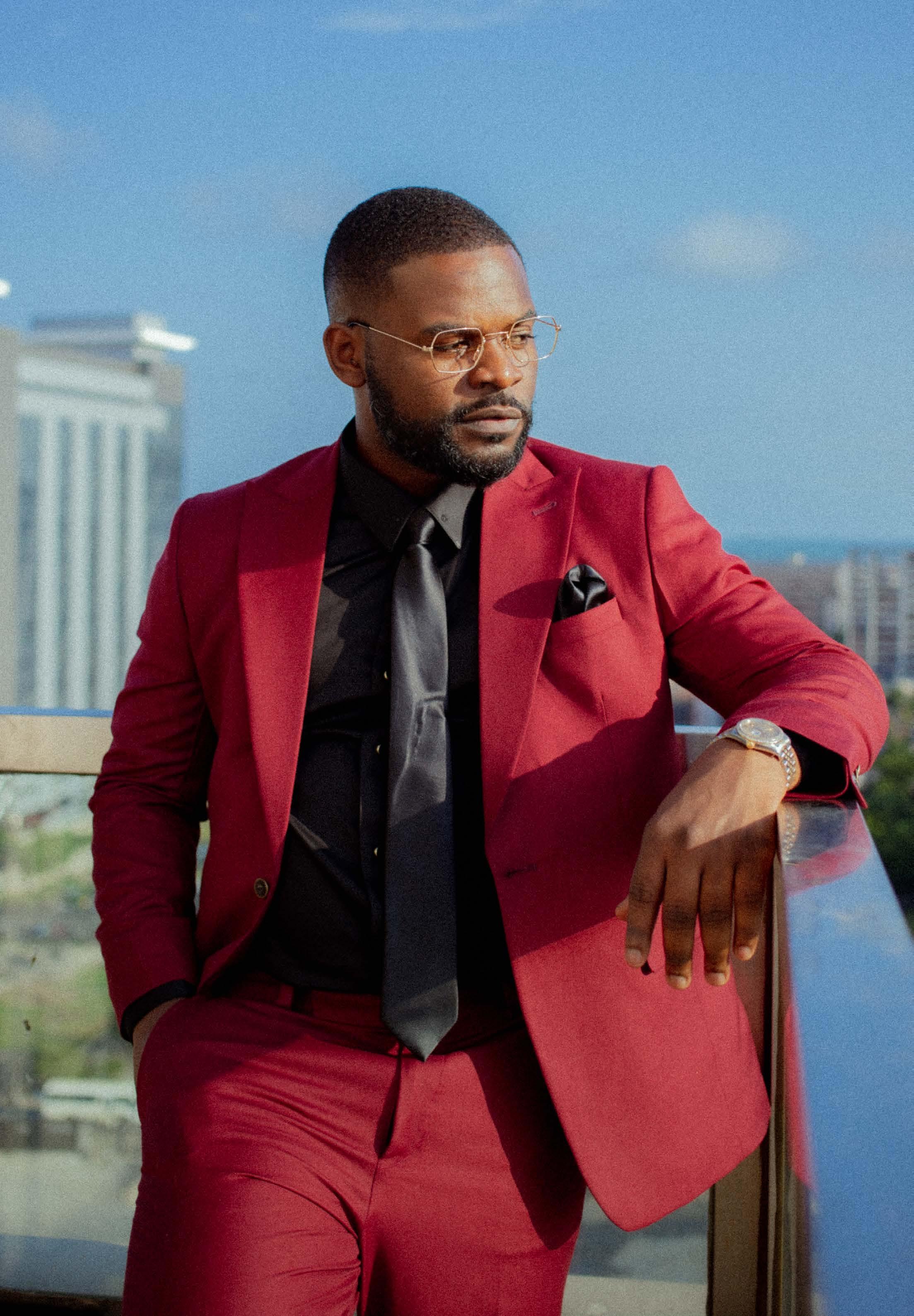 Photography
(Dylan Adekeye Aroloye x Tobee Oyeleye)
Photography
(Dylan Adekeye Aroloye x Tobee Oyeleye)
VOL 2 NO. 40 • OCTOBER 02 - OCTOBER 08, 2022 PAGE 8 THEWILL DOWNTOWN • www.thewilldowntown.com COVER
for pages 8, 9(1) & 10 : Oye 2.0
This is Still Nigeria According
falz
when people are secure that’s when they are comfortable enough to aspire to be anything. If I’m constantly looking at my shoulder, living in anxiety, how can I possibly realise my full potential as a human being?
Everybody needs to feel secure. And what is at the core of security?
The police, military, intelligence agency, everything is in disarray in this country. The police is not police, the military is busy shooting civilians, and everything is just so scattered. These terrorist organisations that have been terrorising the north have continued doing it for the longest time. By no means, security is a no-brainer; I think it’s the number one thing. Then also making people realise how important it is for us to be self-sufficient as a country. Because I personally believe that is the only way we can make significant progress as it stands now, many African countries are guilty of it as well. Many people would say it’s the effect of colonialism, but this is why we remain third-world countries; we are not really manufacturing things for ourselves. We are not producing, inventing or creating; we are just consuming. If you think about it as a normal human being, if you are just spending money without making some, you will be broke eventually. But if you are the one creating what people are buying, you have money, na It’s that simple. But the people that have been in charge of our affairs for the longest time don’t really care for our country; they only care about their own pockets.”
With the failings of the present administration heightened and leading to the frustration of many Nigerians, the forthcoming elections hold a lot of significance, so much so, that a third party has emerged and has become popular amongst the youth; an unprecedented occurrence. Falz analysed this political development. “Even the third force is still not as prominent as these other two have always been over time, so right now, it is still fresh like Woah! But there is so much support, so much ginger, you can’t help but take cognisance. It’s good to know that it has resonated in people’s minds now because I still hear some stupid people say things. I think they should be looking for freshness. I mean I know that all the candidates at the moment have, in
some way, occupied a political position in the past. However, you must look at the track record. Is this person known for doing good? Does this person say or do things to suggest that they have the interest of everyone at heart? Because, as I said earlier on, leaders in the past haven’t really had the interest of the collective at heart; it’s just been their own personal pockets. Who are the people that look like they have continued to amass wealth only for themselves? It’s pretty clear if we really want to look at all these pointers. It’s not that hard to make a decision. Who are the people that seem like they are still coherent with what they’re saying? Who are the people that will be able to carry us for the next few years? These are important things to look at, and I think if people opened up their eyes, it’d be clear.”
This is all credit to young Nigerians who created a movement out of nothing, much like the #EndSARS series of protests that happened two years ago. Falz shared his sentiment on it. “The spirit of that movement is still very much on; I think it is what is making this third force significant. We have started something, and we have to keep it going.”
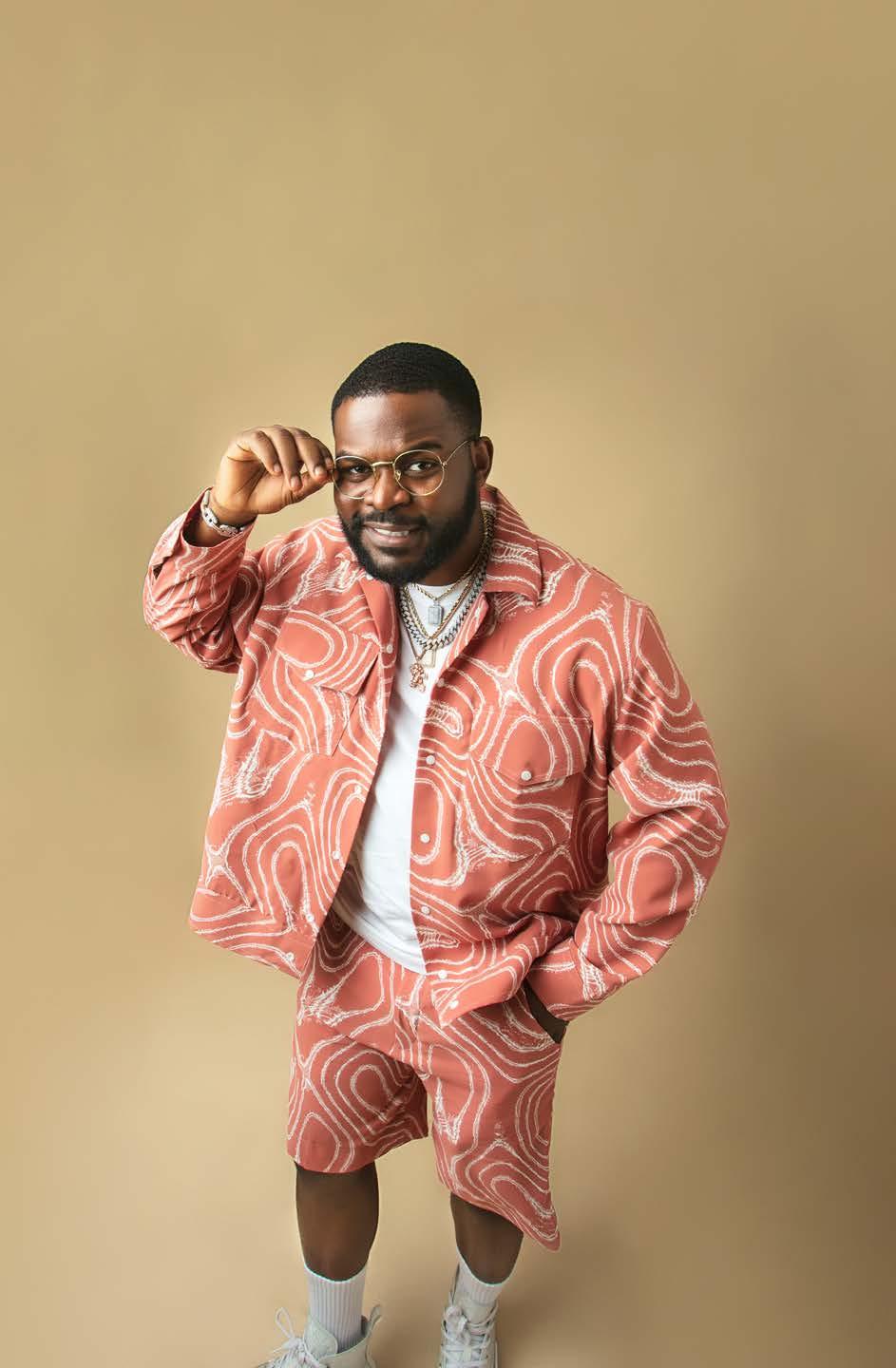
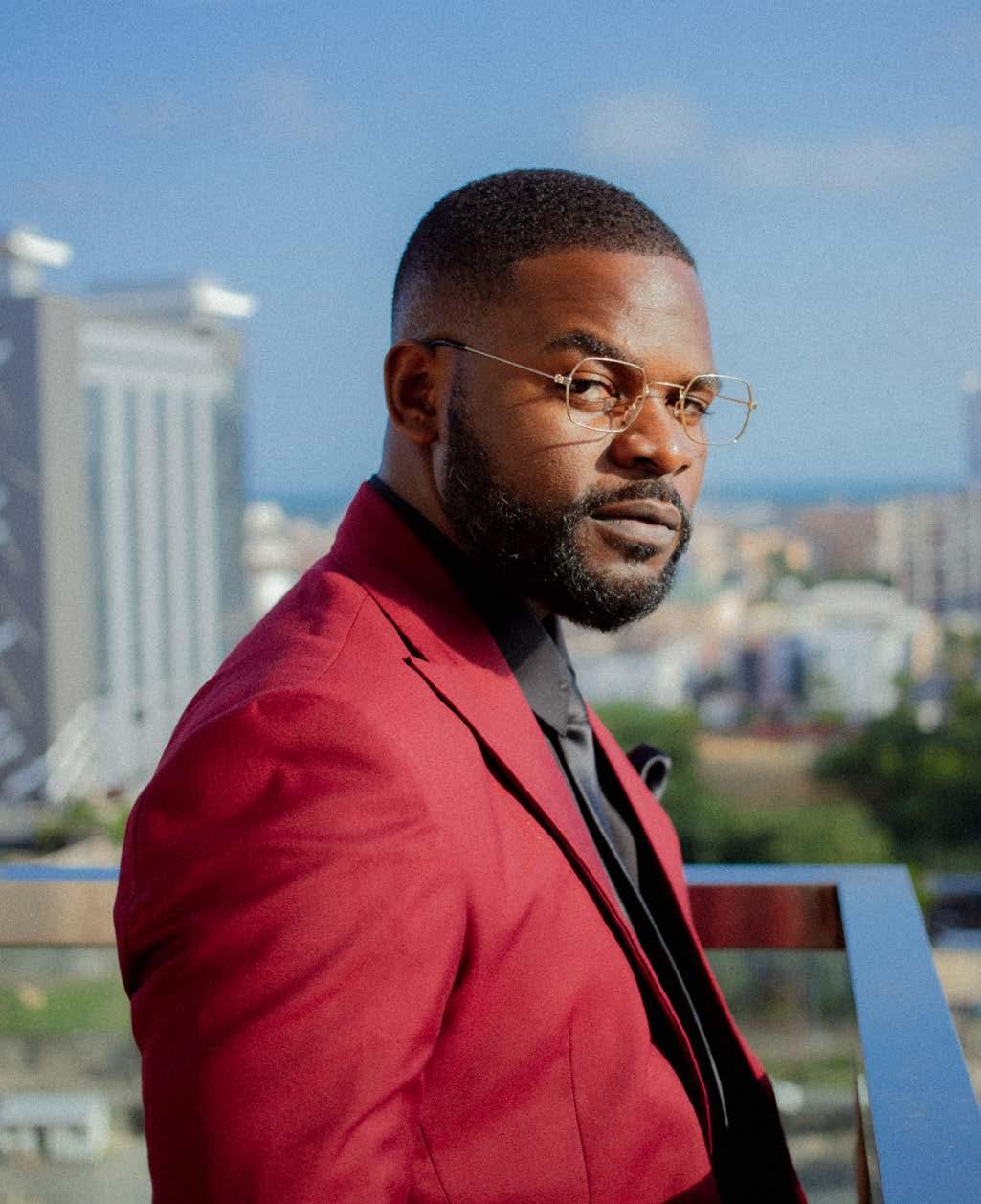
For a long time, it felt as though Nigeria’s future was firmly placed in the hands of the older generation. A sizable amount of people in power today were the same ones in power even before we gained our freedom. This ridiculous hoard of political power has been the subject of several conversations within the political landscape, culminating in a piece of legislation, the not-tooyoung-to-run bill. Despite the new law’s primary aim of relaxing some of the stringent and discriminatory provisions of the constitution, most young people in Nigeria still aren’t involved in politics past the gubernatorial and presidential elections. Falz disclosed the paradigm shift needed to overturn this age-old conundrum. “I think, a change in political culture. Right now, there’s a culture of godfatherism. There’s a culture of padi padi. Nepotism—appointing people from your state, zoning— this one today na your turn, tomorrow na Igbo turn, next tomorrow na Hausa turn, you know all these ridiculous concepts. All these things are taking us back. I understand the idea of inclusiveness and all that. But this is not where it should play out. Where things have to do with the competence of a candidate, that is all that should matter, regardless of where you’re from. So we have real political structures and parties built on this. You know, young people who genuinely feel like,
‘if I come up, and I run, and I’m really merited, then I would win, and it would be a seamless journey. But now everybody’s looking at it like the way dem dey do all these things just dey risky, dangerous, person no get the kind money wey those people get.’ So I think that’s what’s discouraging most young people.”
For some young people, hoping for a country that works is something they’d rather do from outside of it. This year, according to statistics, Nigeria has experienced a mass emigration like never before, resulting in an expected brain drain. When asked what he thinks could be a selling point for young Nigerians to stay back home, he said, “There’s no selling point. One thing that might get people to stay is if these elections actually reflect what the people want, then in that hypothetical situation, if the third force that we speak of does win the election and a brand new fresh personality assumes office, that will give people some level of hope. They will still need to practically see things start to change to fully feel confident, but I think just even seeing that happen will definitely give some people some level of hope.”
Is there any semblance of hope for our country? Looking back at the 61 years we’ve achieved independence on paper, it is difficult to not be pessimistic. Basic things, such as electricity, healthcare, waste management, and so on, are some of the basic things we ought to have gotten right by now as a nation. How soon can we get them sorted? Falz explained, “It should not be too difficult to get it right if you really have people in power that are serious about this. It shouldn’t be difficult. I just know that efforts by anyone that might have been made in the past would have been frustrated by other people benefiting from things not working right.”
Whether things are going to look up or not is heavily dependent on who assumes power after all is said and done in the 2023 elections. Its significance has prompted the Independent National Electoral Commission (INEC) to introduce technology into the collation of the upcoming election results. But another suggestion that has made rounds in the buildup to the elections is the question of Nigerians in the diaspora taking part in it. Falz is not bothered about that.
“Personally, I’m not too concerned about diaspora voting, and I will not worry myself too much about that because the one they are doing here, they have not even gotten right. I think we should focus on getting it right with the people here first before we start including people abroad. We are still talking about discrepancies with collating results and want to be getting votes from the diaspora. Right now, they introduced some form of digitisation to the process. I think it’s only to the extent of collation of the results. Hopefully, that limits the amount of rigging that can take place. Everybody still wants to see how
“I have spoken consistently about the effect of colonialism... really and truly... we still largely mirror what the European man brought here... What are the major religions of the country? ”
COVERPAGE 9 THEWILL DOWNTOWN • www.thewilldowntown.com VOL 2 NO. 40 • OCTOBER 02 - OCTOBER 08, 2022
COVER
it will play out. Let’s hope we get this right so we can know what to do from there. But I think it’s still premature for diaspora voting.”
Having so much to say about the country and how the politics ought to be played, of course, Falz was asked if, like some of his entertainer colleagues, he would run for office someday. He responded, “I appreciate that. However, politics is not beans. Whoever wants to embark on the journey, there’s a lot of preparations, a lot of things they must have gone to do. I’ve not done any of these,” he concluded laughing.
The concept of independence is one that not a lot of people think about in depth. To be independent comes with an enormous responsibility, one that Nigeria, even after 62 years of it, hasn’t been able to manage properly. When asked what are significant areas to focus on this independence day, Falz explained with the perfect analogy. “We need to focus on being truly independent. As I said earlier, we are not independent at all. If you’re at a point where you have to continue to depend on others to carry about your daily life by either borrowing from them or going to buy from them, meanwhile, the raw materials for these things wey you dey buy dey your backyard, are you truly independent or are you still a baby that feels the need to continue being babied? Because that pretty much is what we are—62 years old but still an infant. In no way is ‘this guy’ standing on his two feet. Loans here and there, you know our external debts now? Tomorrow sells his crude oil somewhere to refine it so that he can buy it back as petrol. Is it not madness? As I said, that is the area where we need to focus on for us to be able to say that we are truly independent. We need to be self-sufficient. However, on the bright side—because I don’t want to leave this on the dark side—I think we are still fairly young as a country. Countries in the west have had their working systems for tons and tons of years. For a huge amount of time, we were subjected to colonialism and slave trade; obviously, that completely scatters you regardless of what system you had before that. Even for a significant amount of time during these 62 years, there was still a tussle between democracy and the military. We are not fully balanced, we are still fighting. It’s like children when they are without parental supervision and left to sort themselves out; they will first fight each other for leadership and power; that is the stage we are at. However, we are now reaching adolescence, so we ought to be sensible now to realise that just like the abandoned children, we’ve been left to figure this out all by ourselves, and we are still here fighting. I think now we are in
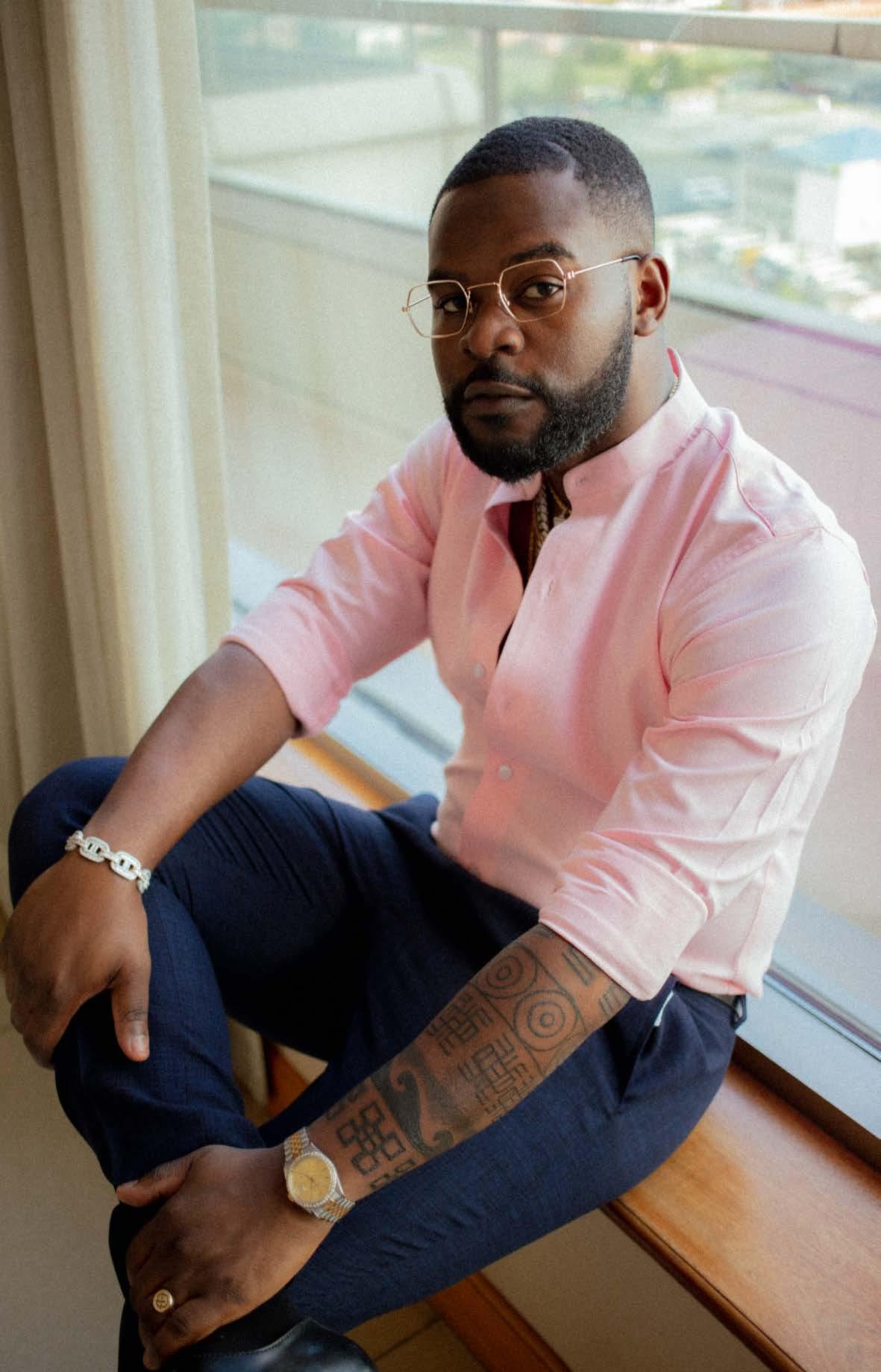
that phase where we are transitioning to be that young adult figure that will now be able to say ‘come, let’s get things right. This adult wey leave us sef, na him cause our problem.”
“I think, a change in political culture. Right now, there’s a culture of godfatherism. There’s a culture of padi padi. Nepotism—appointing people from your state, zoning—this one today na your turn, tomorrow na Igbo turn, next tomorrow na Hausa turn, you know all these ridiculous concepts. All these things are taking us back. I understand the idea of inclusiveness and all that. But this is not where it should play out.”
But of course, we have something to be grateful for even through the present epileptic state of the country. Or don’t we? Falz approached the question with a double-edged response.
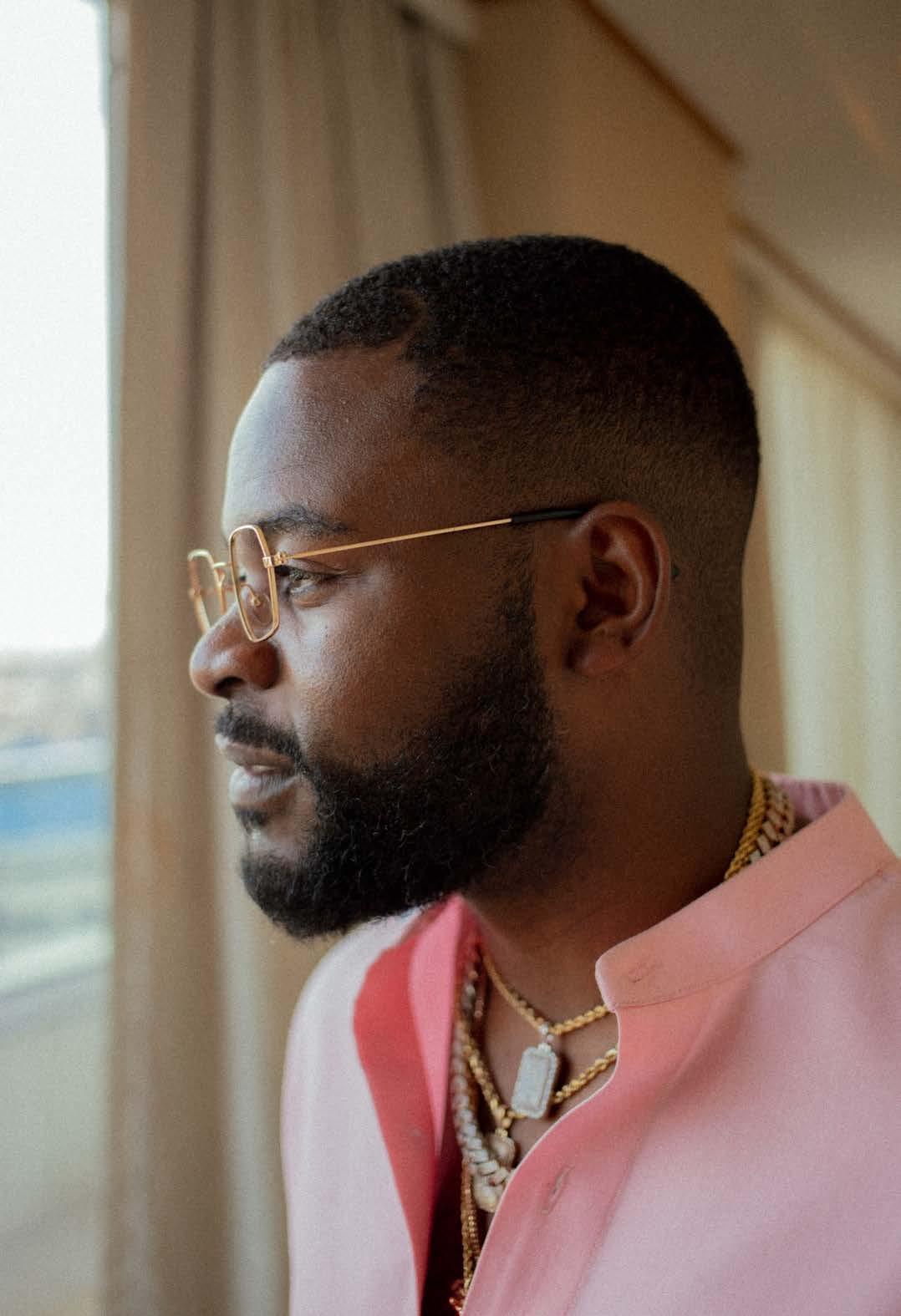
“Collectively as a country, with the way that the political space is, there is not much that is flourishing. However, as people, that’s a different perspective.
As a country, without these irresponsible people that are running us, we
blessed country. If you wake up in the morning, you don’t have horrible conditions as you exist here. The weather is always so perfect; in the worst case scenario, rain will fall. We don’t have anything so difficult to manage. We are blessed with so many resources under our ground. Soil is so rich, so really and truly, we have everything to be grateful for.
However, on the flip side of things, we’ve had so much irresponsibility in the political space, so we don’t have anything to be grateful for.”
A strong force in the entertainment industry, he is the only musician in possession of not one but two AMVCA plaques. Having registered a consistent presence in both the music and film industries, two of the very few sectors in the country that work, Falz answered the question of what other sectors aside from entertainment work. He chuckled in his response. “Very good question; I don’t know of another one. Entertainment is what is giving everyone hope right now. Everyone is so down about every single thing in Nigeria; nobody is excited about anything apart from arts in general. African artists are what’s giving us hope.”
As aforementioned, Falz’s reputation as one of the few
entertainers that speak directly not just to the government but also to its people is unrivalled. His music is often littered with several controversial talking points that sometimes put social media in a frenzy. On Moral Instruction album, he discussed the concept of freedom. When asked to elaborate on what he thinks we need as a people to be free, he expounded. “To be free is to know who we are. We are absolutely lost. Apparently, we don’t know who we are. We still think that our true identity is what they’ve told us. I have spoken consistently about the effect of colonialism and all that stuff because, really and truly, the way we live now, we still largely mirror what the European man brought here. We haven’t been able to sit back and look at ourselves and say this is not me now. And as you correctly said, it ties into religion as well. What are the major religions in the country? Christianity and Islam were brought to us. Before the colonial masters came, we had systems that were working for us; we had gods we were serving. But as soon as these people came, what happened? We threw away our own. Are we mad? I mean, I don’t think it was voluntarily initially; these guys came with weapons, they came forcefully, so yes, they are the bullies. But there’s also a certain level of acquiescence that kind of happened on our side. Just being tacit, being almost like cold that these people are able to just walk over you and change your whole life settings. And till today, na still
VOL 2 NO. 40 • OCTOBER 02 - OCTOBER 08, 2022 PAGE 10 THEWILL DOWNTOWN • www.thewilldowntown.com
those settings we dey use operate. So until we wake up and realise that this is not us, not till then will we start to truly appreciate and love who we are. Because it is not until you appreciate yourself that you will know that ‘wetin dey this bottle? Why we no fit make am? Why we gas buy am from Europe? Kamoru in this place is into something something, come let’s make this bottle, what do you need? How can we make it?’ But we don’t even believe in ourselves. If I ask you where you got your shirt from, you’d tell me it was imported and consider it a flex. But that is stupid because what are you making in your country? What can your country boast of in terms of manufacturing? Absolutely nothing. And it wasn’t always like this.”
This year, however, saw a lot of changes in his music style. On an artistic level, Falz’s latest body of work, BAHD, sounds nothing like what he was known for. For this album, he relaxed the hard-punching relentless rap bars for a more melodious lineup of songs. He explained why he switched up his style. “For me, not being able to be boxed has always been my number one mantra as an artist. I do not ever want to be put in a box; I want to continue to reinvent myself, evolve, to flip the script. And that’s what I tried to do with this project; I wanted to do things differently. In the majority of the songs, I am singing, even though I’m primarily a rapper. There are a lot of emotions, it is sexy, and it is a completely different type of project. With me, it’s never one way. I have to stay unpredictable; never let them know your next move. There was that reaction from some people, almost like they don’t know what to expect. But at the end of the day, you will warm up to it, you’ll give it another listen and realise, ‘oh, wow, this is something different; I didn’t know I needed this in my life.’ The Falz that you know and love is still there o, don’t get me wrong. This is just a different journey; let’s see how this journey goes.”
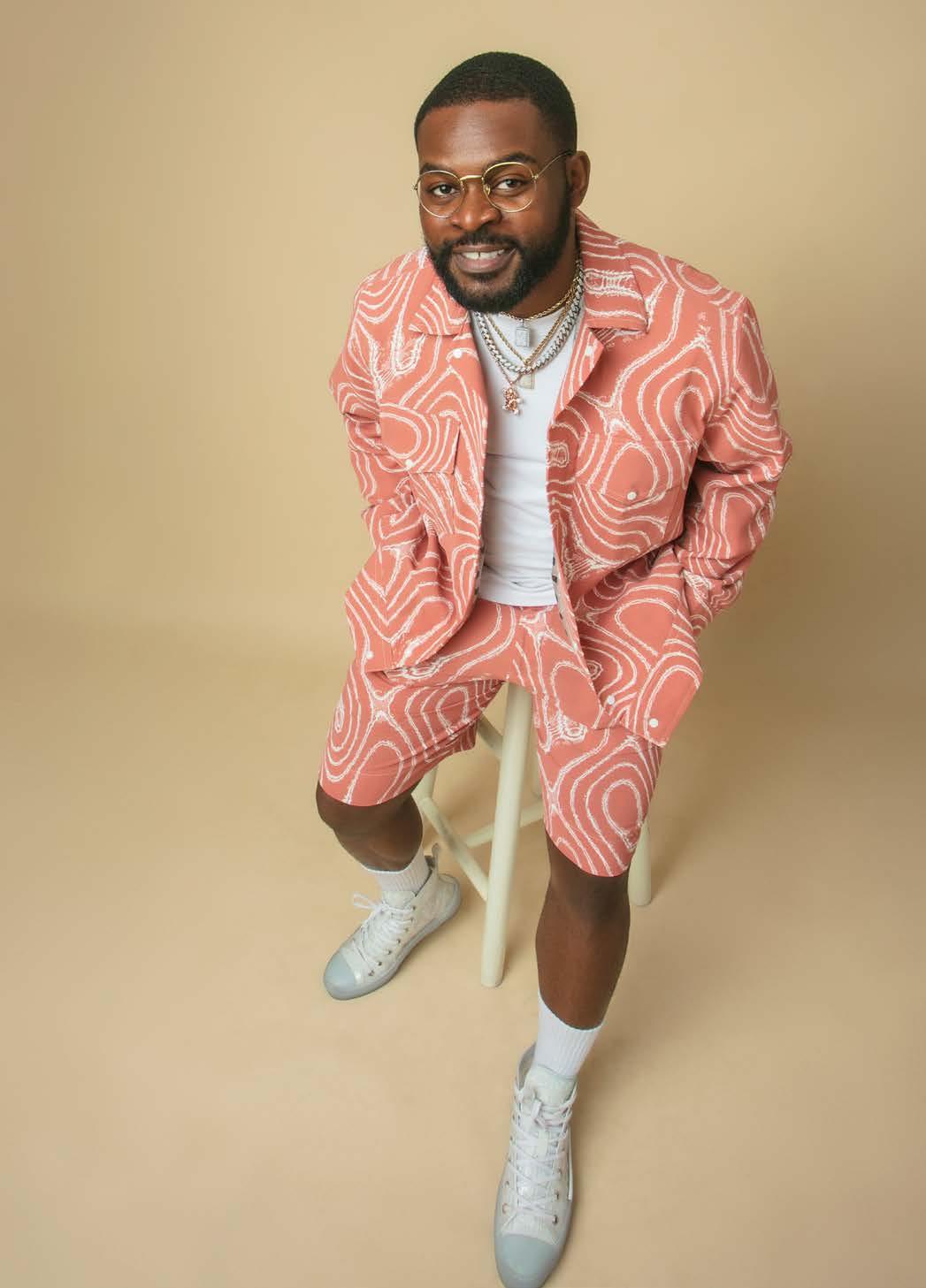
Does he think it’s a worthy leap having to wait for people to warm up to his new sound? “It will definitely be a different journey, but I know that the way will always show itself eventually. If something is meant to go a certain way, the way for it to go will always show itself AKA what will be, will be. You’ve rightly said it definitely has to be a different strategy.”
On future projects, he disclosed, “Brotherhood just dropped. Go and watch it! It will blow your mind,” he repeated four times for emphasis. He continued, “It’s different; it’s action. Action films aren’t often done because people aren’t sure how the execution will turn out. However, this is very well done. I believe it will blow your mind like Bahd As for future projects, I’m definitely going to work on a lot more film projects, nothing to announce yet. Also, music-wise, it never stops; it is back to back to back, so stay tuned, more stuff coming.”
As the interview rounded up, it was important to shift the focus of the chat back to Nigeria. The most populous black nation in the world has the largest population of youth in the world, with a median age of 18.1 years. About 70% of the population are under 30, and 42% are under the age of 15. We are a very young country, so one would wonder why youth empowerment takes a backseat to most of the country’s welfare offerings.
Falz shares his opinion on the best way to empower the youth. “In the simplest form, supporting every form of ambition across board that they would like to realise. Ambition will span across different classes in society. The youth in Egbeda, for example, is not the same as the youth in Ikoyi. There are different things that they
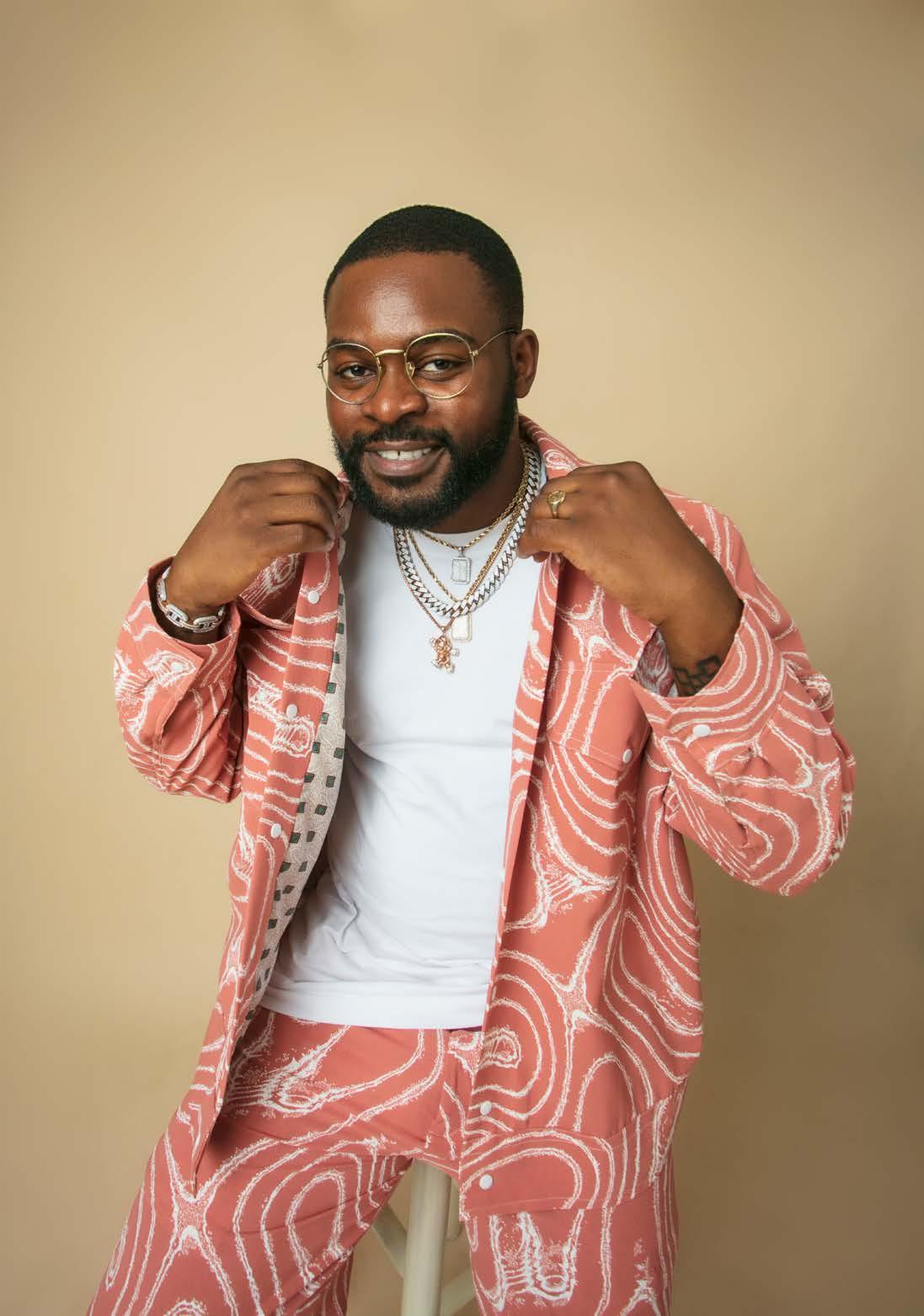
want to achieve. But I’m saying, across board, them feeling like, “oh I can make it in Nigeria.” Now this person’s ambition might be to become a policeman. Making this person feel like their dream is valid and very achievable. But this person is already having self-doubts and thinking, ‘even with University, I can’t complete because ASUU is on strike half of the time. Even if I complete that, where will I find a job?’ So it is just fixing all these things, that is the answer. Let me feel like, as a young person, I can go to University, finish at the time I’m supposed to, and the standard of education is so top-notch that as soon as I finish, I’m getting a job. A job that pays well enough to sustain my dream. Simple. That’s all young people want; they just want to make it. The other demographic, the youth in Ikoyi, has some businesses to do, but the political setup makes it difficult for him, the rules, the taxes, and so on. Just make things easier for people to live, survive and realise their ambition. Everybody has a dream, and everyone is working towards something. So don’t let them feel like you are constantly frustrating them because that’s the way that we are feeling right now.” He continued, maintaining the same passion he started with. “Nigeria has the highest number of out-of-school children. That’s just a fun fact for you to sit down and realise. India has maybe four times our population (if not more); however, we have more children out of school than them. We also now recently overtook India for the highest number of poor people living in the country. Now India is in billions (1.4 billion people), so if they kept that number spot (the ranking of the highest number of poor people living in a country), everyone would understand that it’s because there are too many of them. Realising all these and allowing the stats sink in, is it not so annoying and frustrating that nobody is even doing anything about it.”
What is one message he has for young Nigerians? “Wake up and smell the coffee. Wake up and realise that the life you’re living right now is not your own; it is the life that the colonial father has put you in. This is what I was saying earlier; the effects of this post-colonial era are why we are still living our lives in this narrowminded state. This is how they left us; since then, everything we do has tried so much to be like the colonial fathers. Let’s realise who we are and see the beauty within that because that is when we will start to appreciate ourselves and be able to know that there is absolutely no reason why we can’t be self-sufficient. That is the only way we can get ourselves out of this mess. If Nigeria wants to consume these disposable cups, for instance, we have to import them. Nothing that we make here. It’s a mess. China is one of the strongest economies in the world. How so? They realised this thing I’m saying a long time ago. They shut off the world to many things. Apple, one of the biggest brands in the world, is largely dependent on the Chinese economy. Apple today can crash if political powers that be in China say that absolutely no Apple product can be made in the country again. All the HITECH products they sell at ridiculously expensive prices are made in China for way cheaper than they would have had to make in the US. That’s why they are making such a killing as a country. In the world, Africans, black people, are some of the most intelligent, most talented,
COVERphysically, we’re the strongest, we have everything to be what we should be. So this independence, that’s what I want everyone to think about. Selfsufficiency.”
Four years have passed since his infamous controversial single This is Nigeria was banned for painting a vivid picture of where the country stood. Four years on, as we celebrate our 62nd anniversary of freedom, the same issues still plague us today. And although we can choose to focus on the positives and be grateful, Falz’s voice still echoes loudly as a constant reminder that this is still Nigeria.
“
...the effects of this post-colonial era are why we are still living our lives in this narrow-minded state. This is how they left us; since then, everything we do has tried so much to be like the colonial fathers....”
PAGE 11 THEWILL DOWNTOWN • www.thewilldowntown.com VOL 2 NO. 40 • OCTOBER 02 - OCTOBER 08, 2022
BEAUTY
Transitioning To Natural Hair
8 TIPS TO HELP GROW OUT YOUR RELAXED HAIR
BY AKINTOYE DORCAS
Consistency, commitment and patience are not the only things required for transitioning your relaxed hair to natural. You need a primer on the best natural hair care product to use during that period and an adequate understanding of how your hair grows.
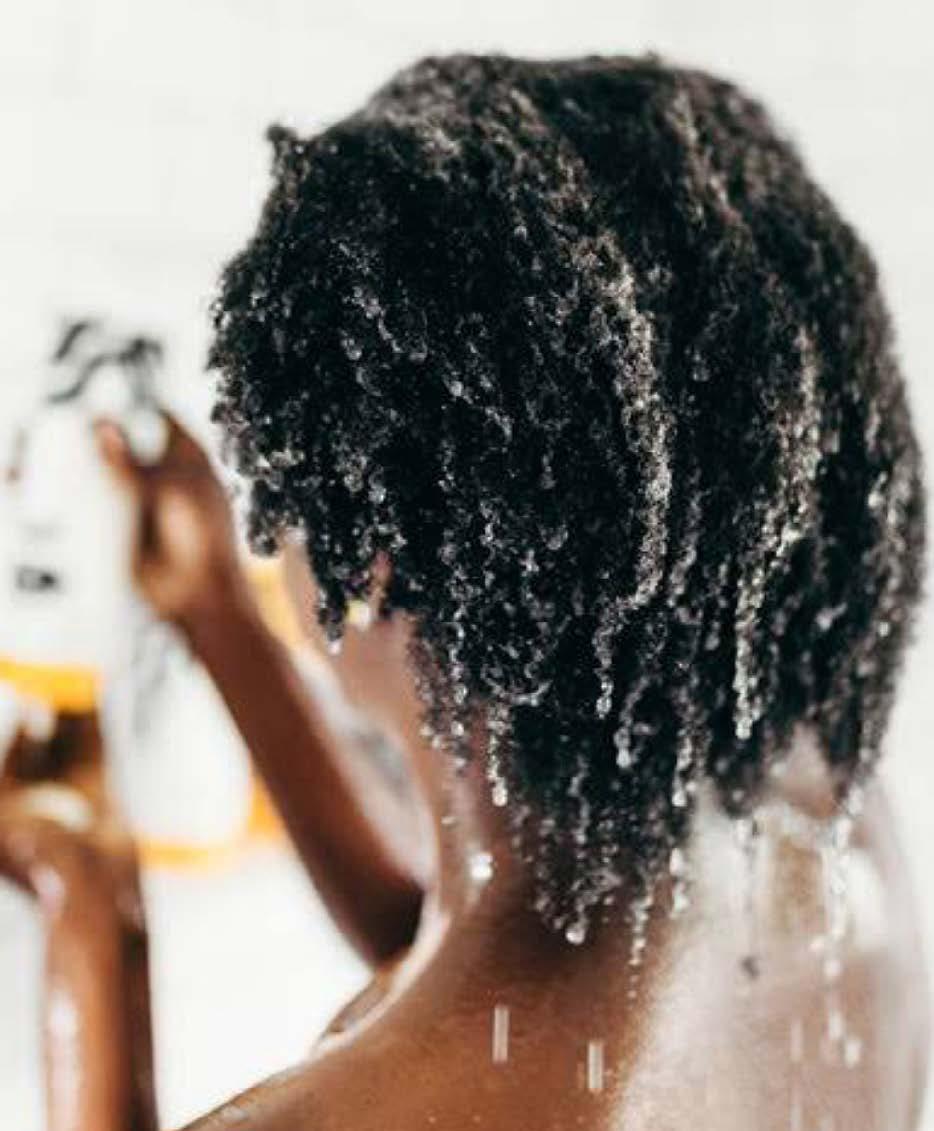
Every human's hair is different, so while the step to transition from relaxed to natural hair may seem universal, the way your hair will respond to the process may be different from another's. And that's why you should remember that there is no right or wrong way to transition to natural hair - the goal is to have healthy hair.
If your preference is maintaining length, it is possible for you to transit to natural hair without giving your hair a big chop. Although, whether you decide to cut it or not, be prepared that it will take some time for your natural curls to come in and shape up.
Many find transitioning daunting, but before you know it, you'll have a natural hair routine, and your curls will roll right in.
Among the many questions people ask are: "What is a good routine for transitioning to natural hair?" Or "how long does it take to transition to natural hair?" This article will show eight tips to help transition your relaxed hair to natural.
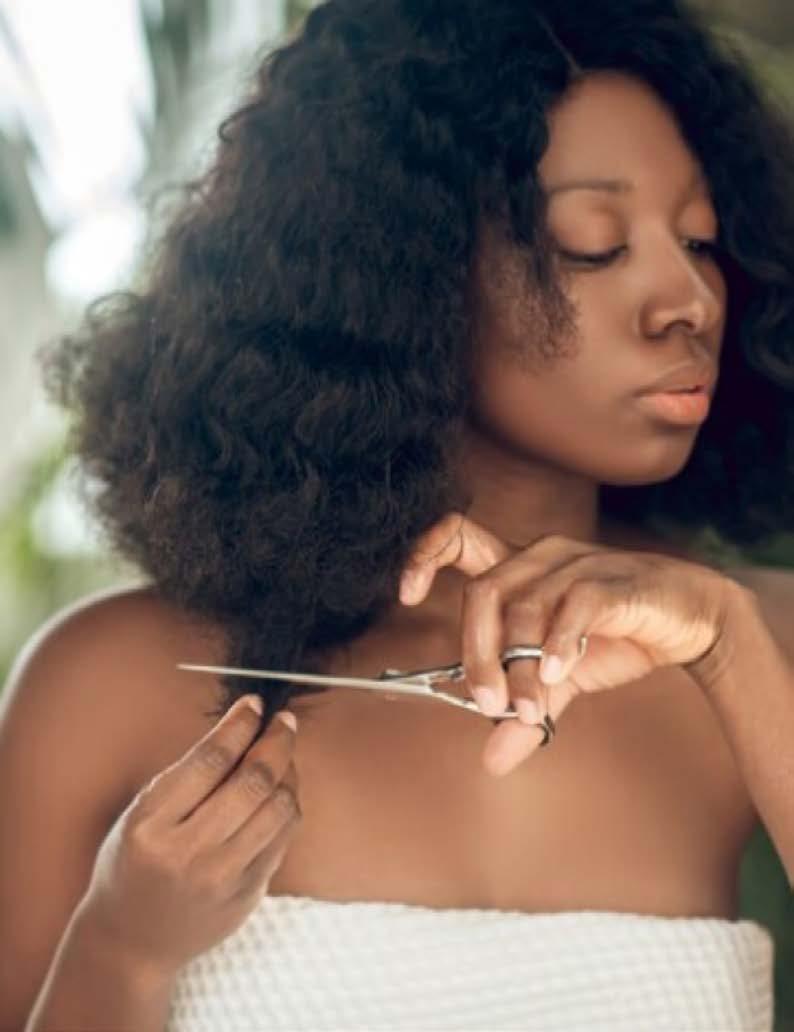
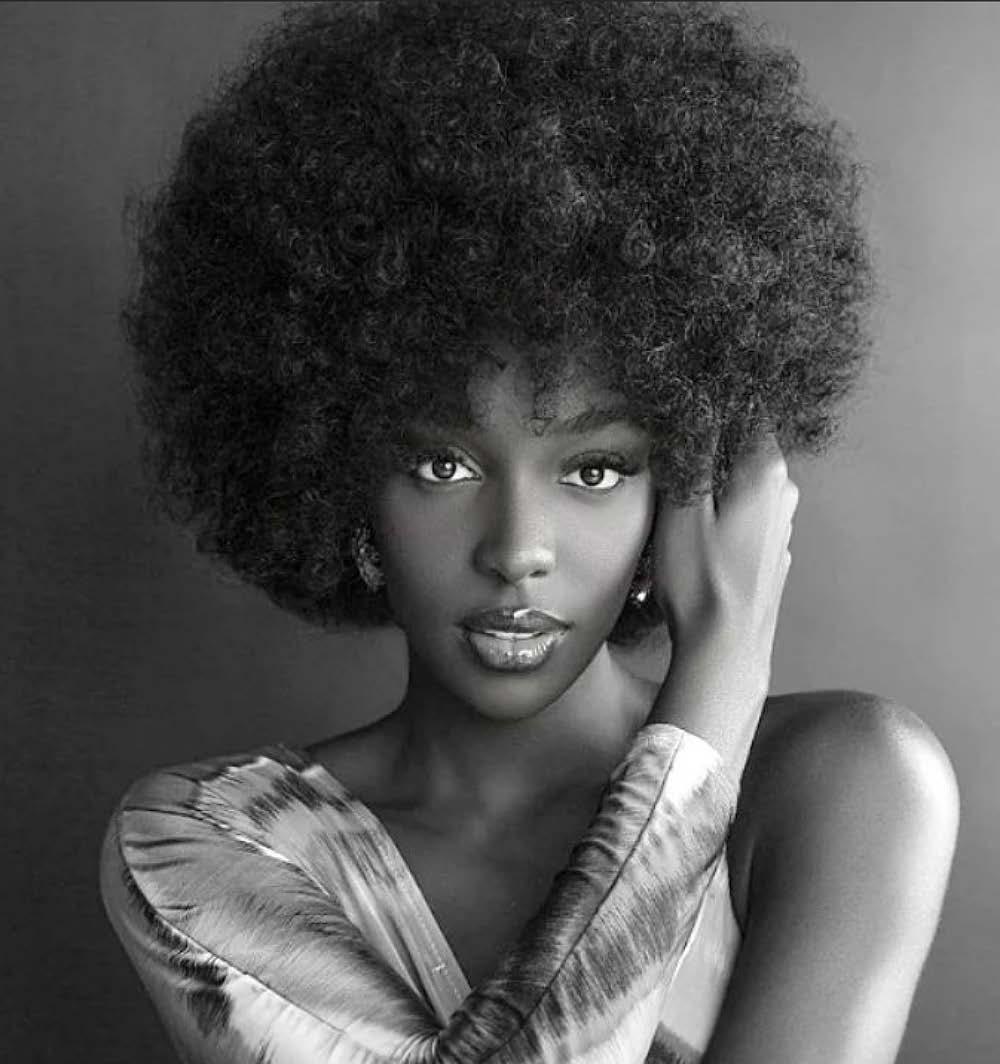
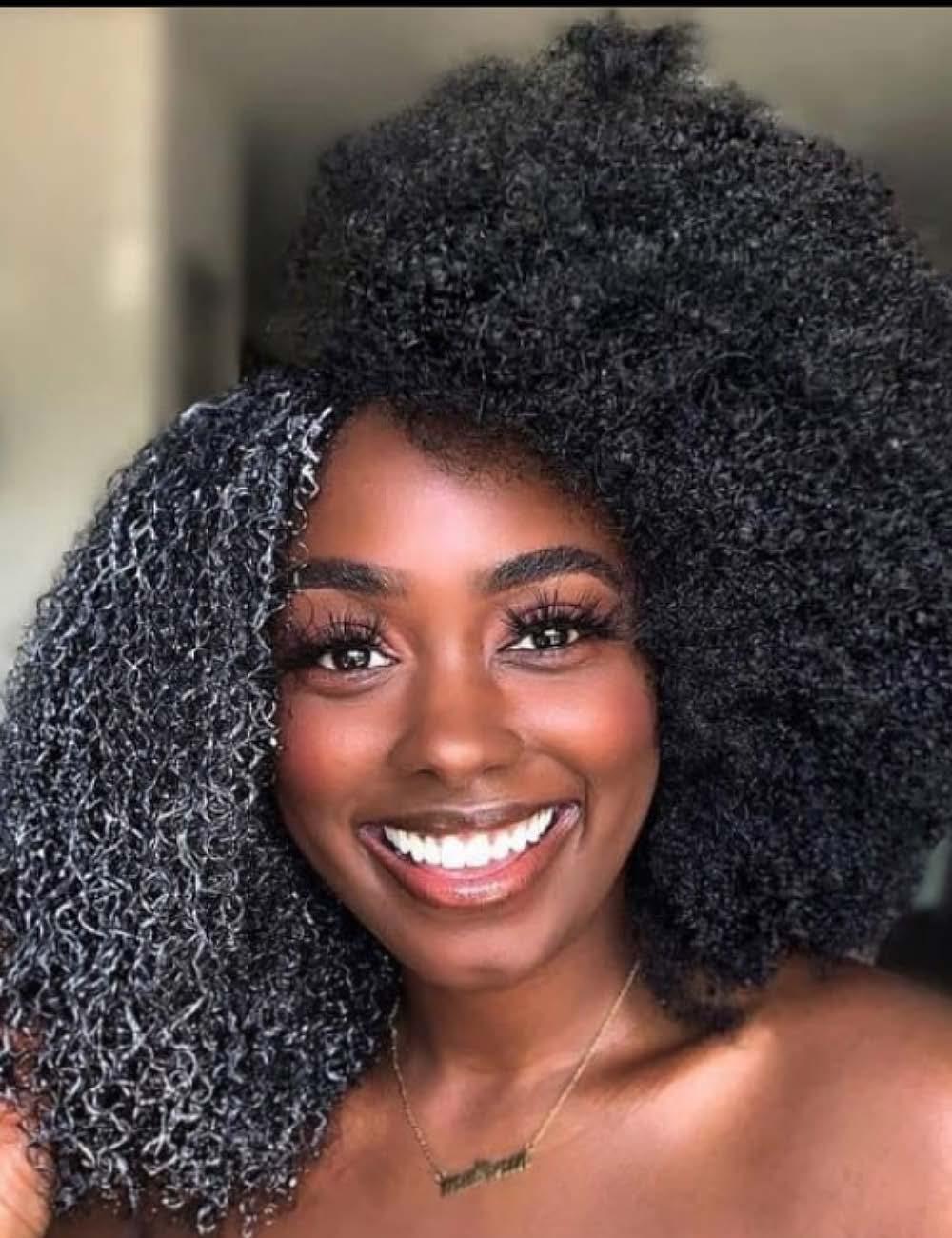
(2) Cut When Necessary
(1) Be Patient
It will take at least three to four months to see the transition changes. It doesn't matter whether you give your hair a big chop or you gradually grow out the relaxer. In fact, for some people, it takes up to a full year before they are entirely chemical-free. It all depends on how long your hair takes to grow and how well you treat and protect it during the transition phase.
Managing your expectations through the transitioning process will help make the stages less frustrating because, at some point, it will become tough. But while you are at this stage, try to set a time frame for when you want to rock a particular curly hairstyle, and as time goes by, you will achieve your natural hair goal. It just may not be within the window that you designated.
(3) Deep Condition Often
VOL 2 NO. 40 • OCTOBER 02 - OCTOBER 08, 2022 PAGE 12 THEWILL DOWNTOWN • www.thewilldowntown.com If you are part of the category that wants to transition to natural hair without cutting it, there are a few ways to grow natural curls, but it is important to know that for the health of your budding curls, some cutting is necessary. It doesn't really mean a big chop, but just a gradual trimming of the ends of your hair every six to eight weeks to help speed up the process. Doing this will strengthen your fragile strands as they transition from being straightened by chemicals.
Any hair that is transitioning is very fragile. The most challenging part is when your new growth and previously straightened strands meet, but all you have to do is treat that area with extra care. You can achieve that by keeping the hair from drying out by deep conditioning. Failure to do so will lead to hair breakage.
(4) Plan Out Your Protective Styles
Protective hairstyles give your hair a moment to breathe and go untouched, making the concept ideal during transitioning. When choosing a protective hairstyle, ensure you keep the tension off your hairline, temples and nape of your neck.
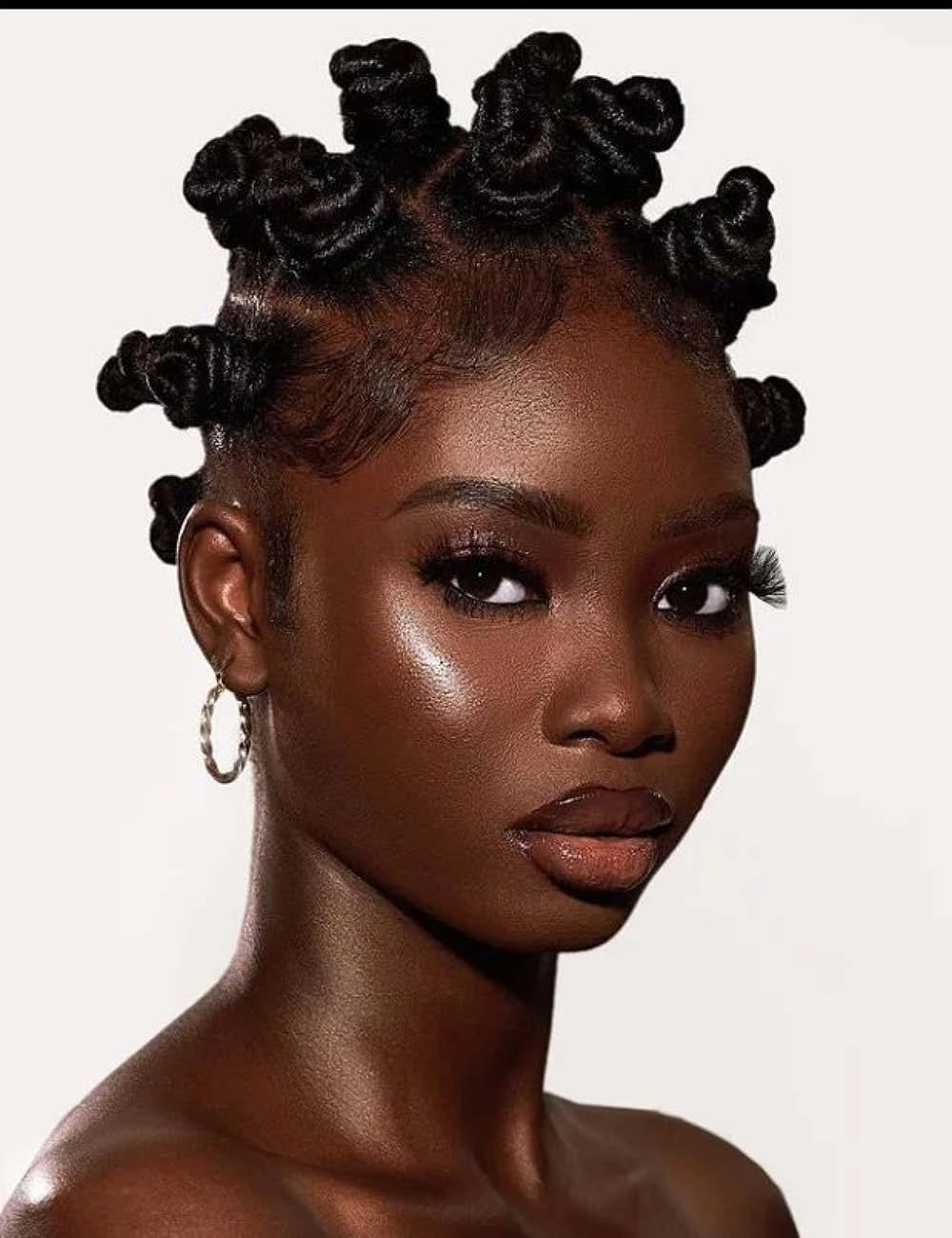
To plan your protective style, you can map out your styling option. You might go for box-braids for a few months, then flexi-rod sets for a couple of weeks or something else entirely. Doing this will give you some short-term switch-up to look forward to and also help take your mind off how much your curls have grown.
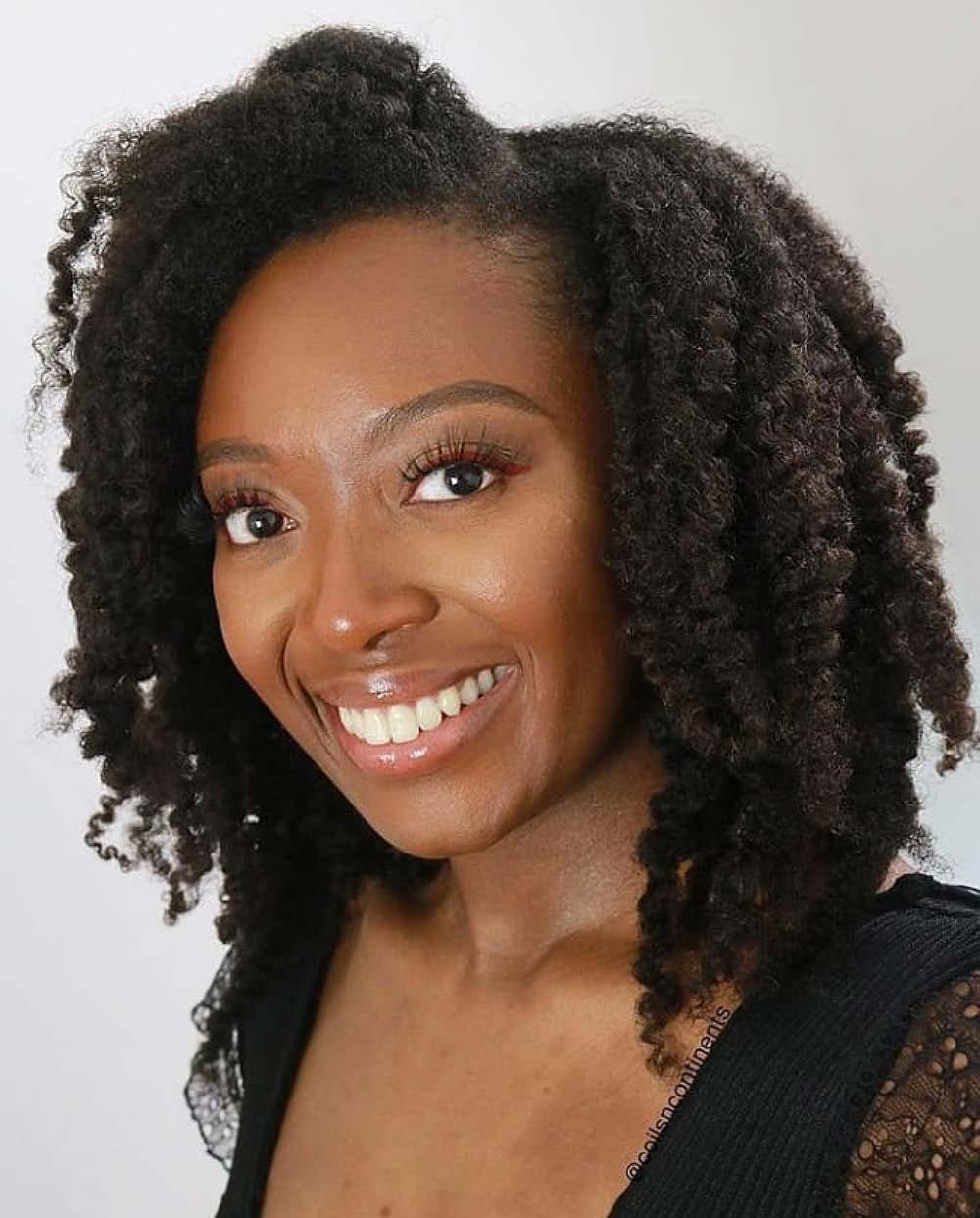
(5) Cut Back On Heat Styling
Cutting back on heat styling is one of the most crucial transitioning hair tips. The same reason you need to deep condition more often is the same reason you need to reduce the amount of heat you apply to your hair.
You might want to maintain a straight look until you get enough new growth to wear your hair curly, but remember that the heat from the hot tools can dry your hair and cause breakage. It can also compromise the state of your new curls by changing the curl pattern it is growing into. Your curls may look stretched out, heat damaged or warped.
(6) Don't Stress The Shedding
Does transitioning hair shed a lot? Yes. Is it reversible? Somewhat. When transitioning to natural hair, there will be more hair breakage if it is not moisturised regularly. Remember, though, that your hair is supposed to shed naturally — about 50-100 hours a day, to be exact. It is normal to see your hair shedding, whether you are transitioning or not. It is completely normal and not a reason for concern. Only ring the alarm when you see golf ball-size clumps of hair daily. This may signal a bigger concern that a stylist or dermatologist can weigh in on.
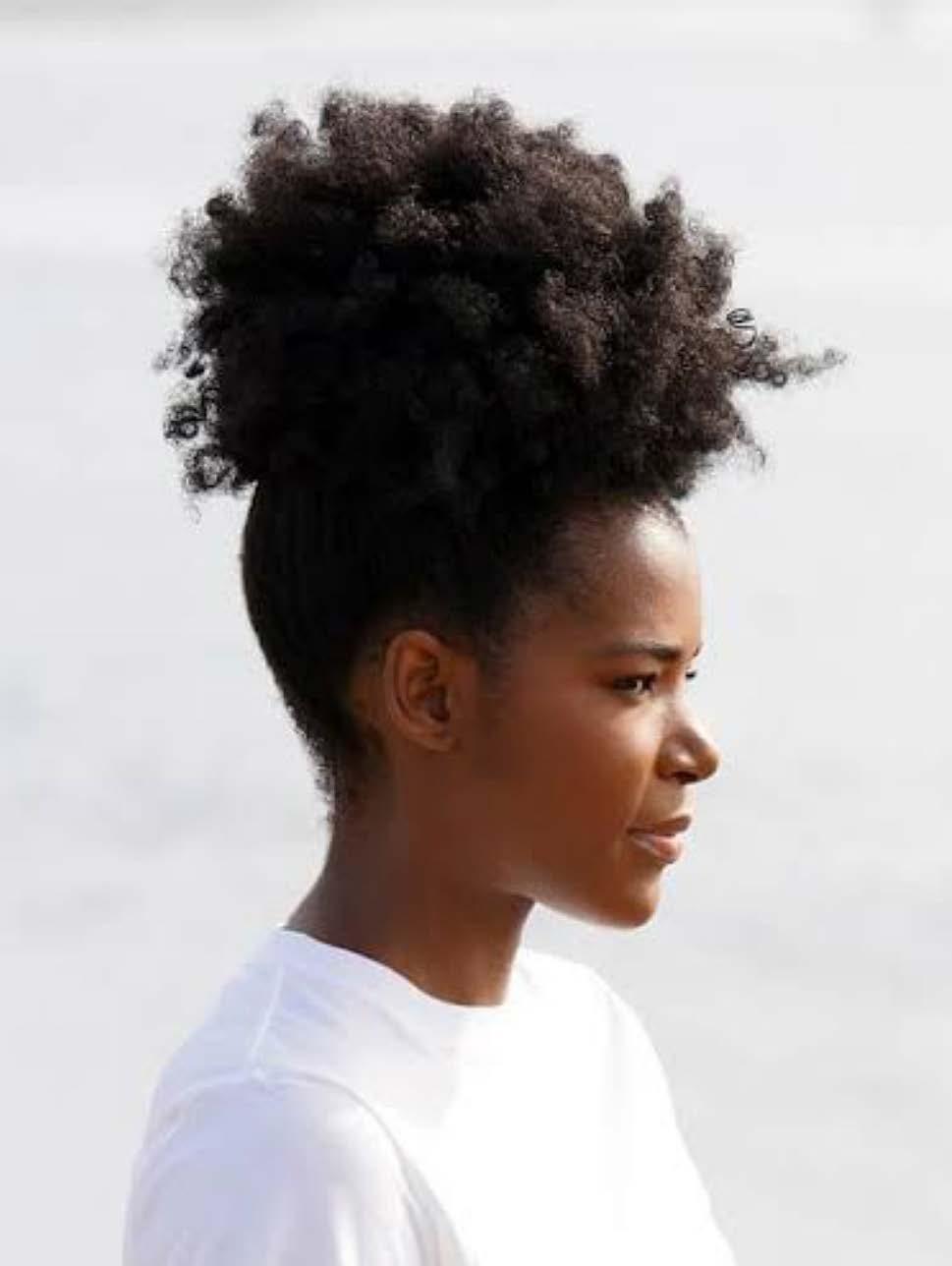
(7) Detangle Carefully
How you comb and brush your hair during the transitioning phase is very important. Before detangling, ensure your hair is thoroughly coated with the moisturising cream or conditioner and use a wide tooth comb to detangle from the end of your hair up to the roots. Avoid using fine-tooth combs when styling and especially when detangling. Try to avoid brushing transitioning hair when wet; you can get back to brushing once your curls come in. Even so, be careful when brushing your hair to prevent disrupting your curls.

(8) Keep Hair Moisturised
Hair must stay hydrated to maintain the elasticity needed to keep fragile curls growing. Ingredients like glycerin, hyaluronic acid and penetrating oils like avocado, monoi and grapeseed are good moisturisers for transitioning hair and can replenish lost moisture.
You can fuse them during your deep conditioning sessions before styling. Don't worry about overdoing it; there is nothing like too much moisture, especially for low porosity hair or hair between the curly and straight phases.

PAGE 13 VOL 2 NO. 40 • OCTOBER 02 - OCTOBER 08, 2022THEWILL DOWNTOWN • www.thewilldowntown.com BEAUTY
EATS
There’s no Way These Are Local Dishes
BY KEHINDÉ FAGBULE
When we think about food, we feel good. About ourselves, about our environment, and—some could even argue—about life. But obviously, some foods get more love than others. Like most things, international cuisines get more glamour and camera attention than our local delicacies. You will be more likely to want to see Italian pasta being displayed instead of garri and egusi at any high-end restaurant. And no, it is not a bad thing at all. You see, we as humans—all around the world—are wired with a “see finish” mentality. Garri was a very significant part of our childhood, and as you grow older, you naturally want to see other options. And it is no surprise that only top restaurants have these courses. The respect that the regular tuwo shinkafa doesn’t get back home; however, it gets outside of the country.
Often, Nigerians discover a new level of plating that restaurants these days subject our beloved traditional meals to. Some of them you can’t even recognise, and it sparks a conversation on the internet with people inferring that the dishes went for their master’s degree abroad—in a bid to of course, discuss the course’s superiority. So now the moi-moi that you’ve always known is no longer called moi-moi. It doesn’t even look like one.
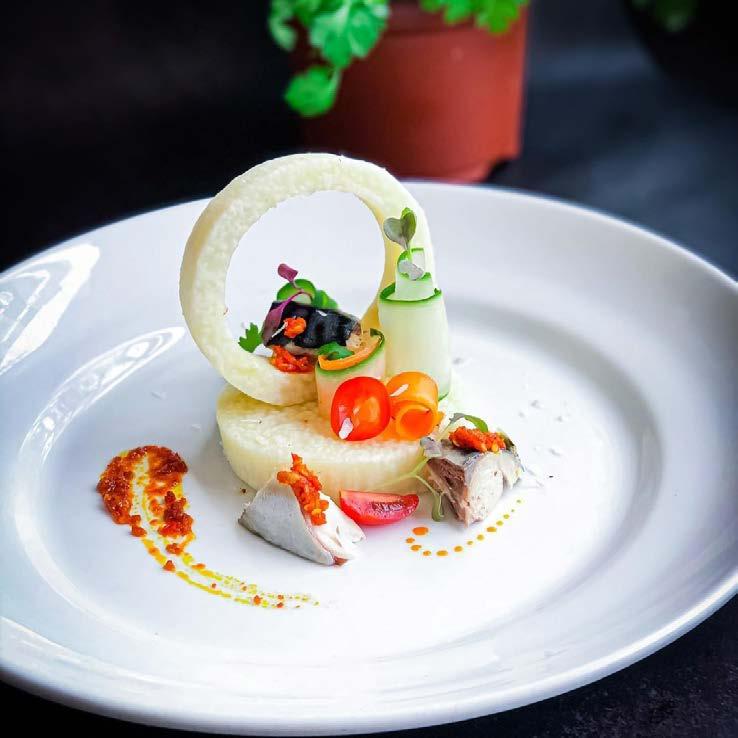
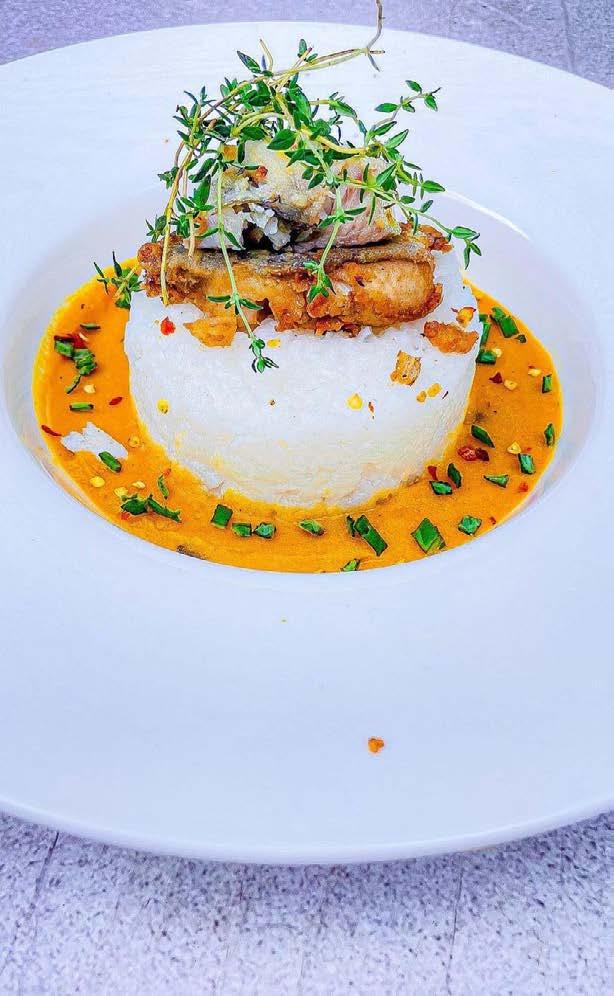
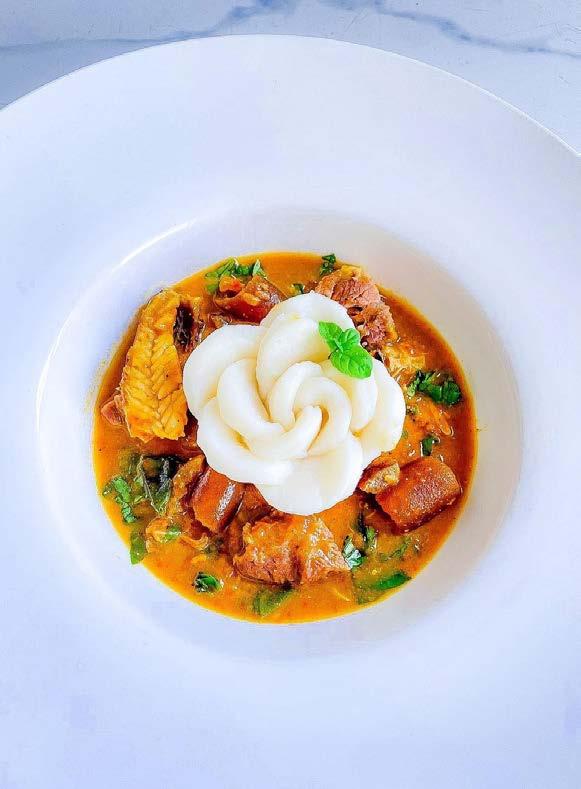
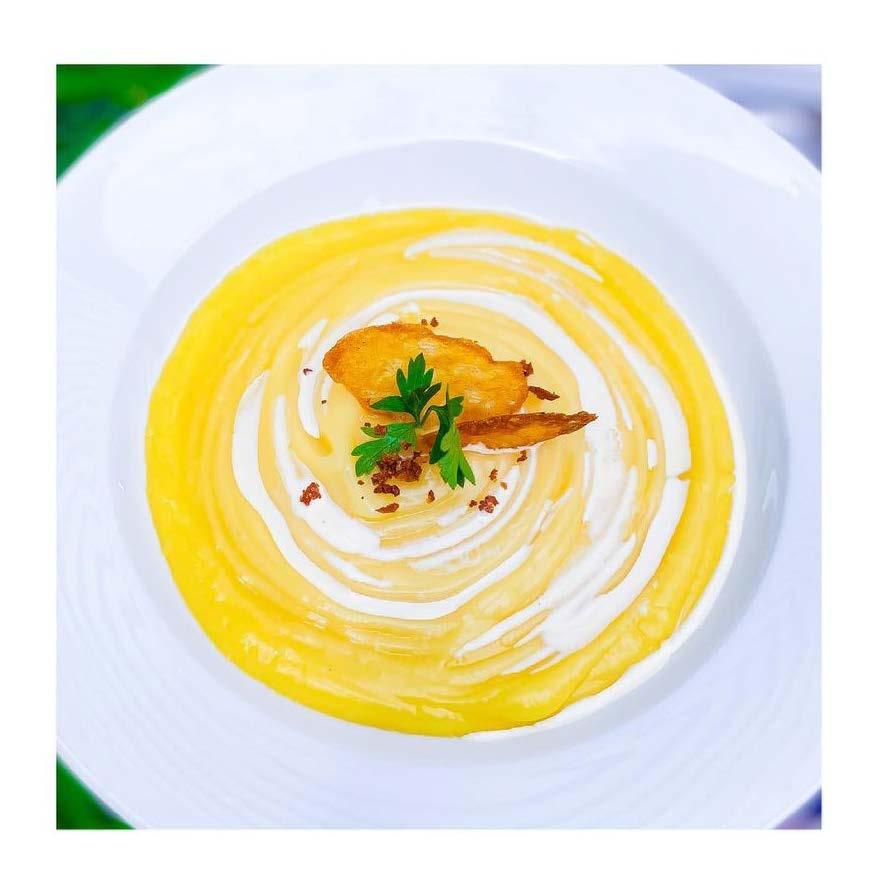

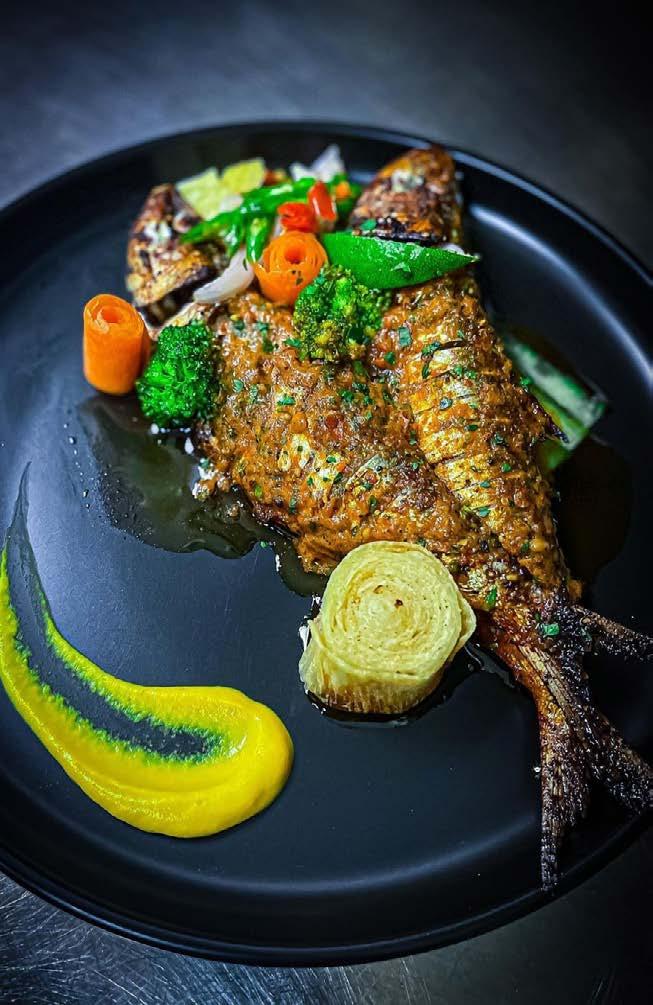
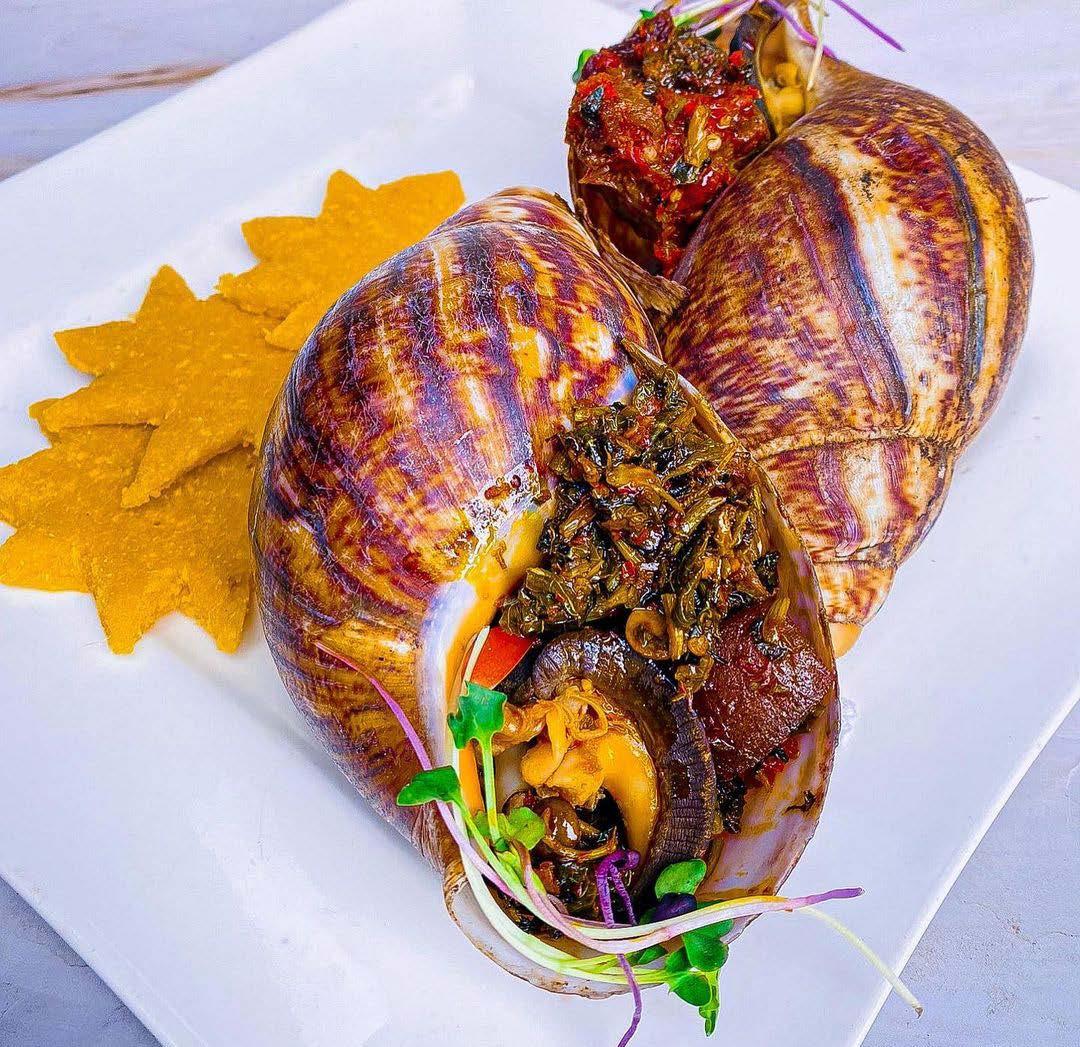
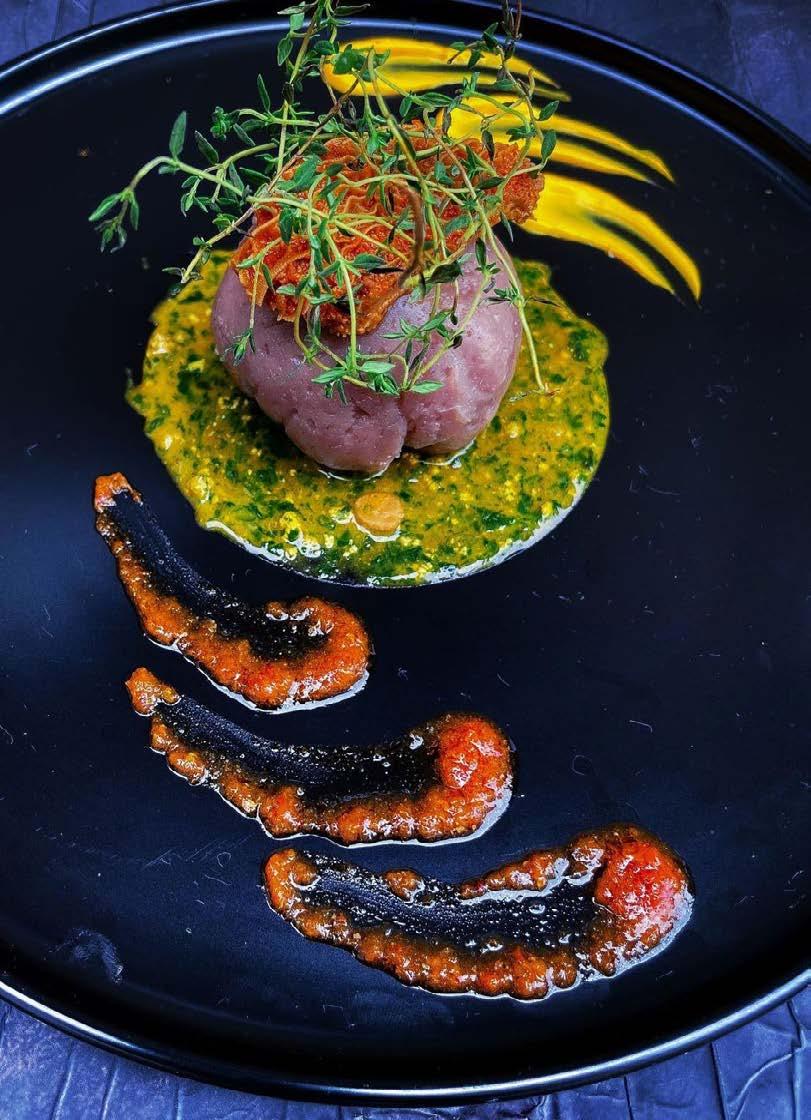
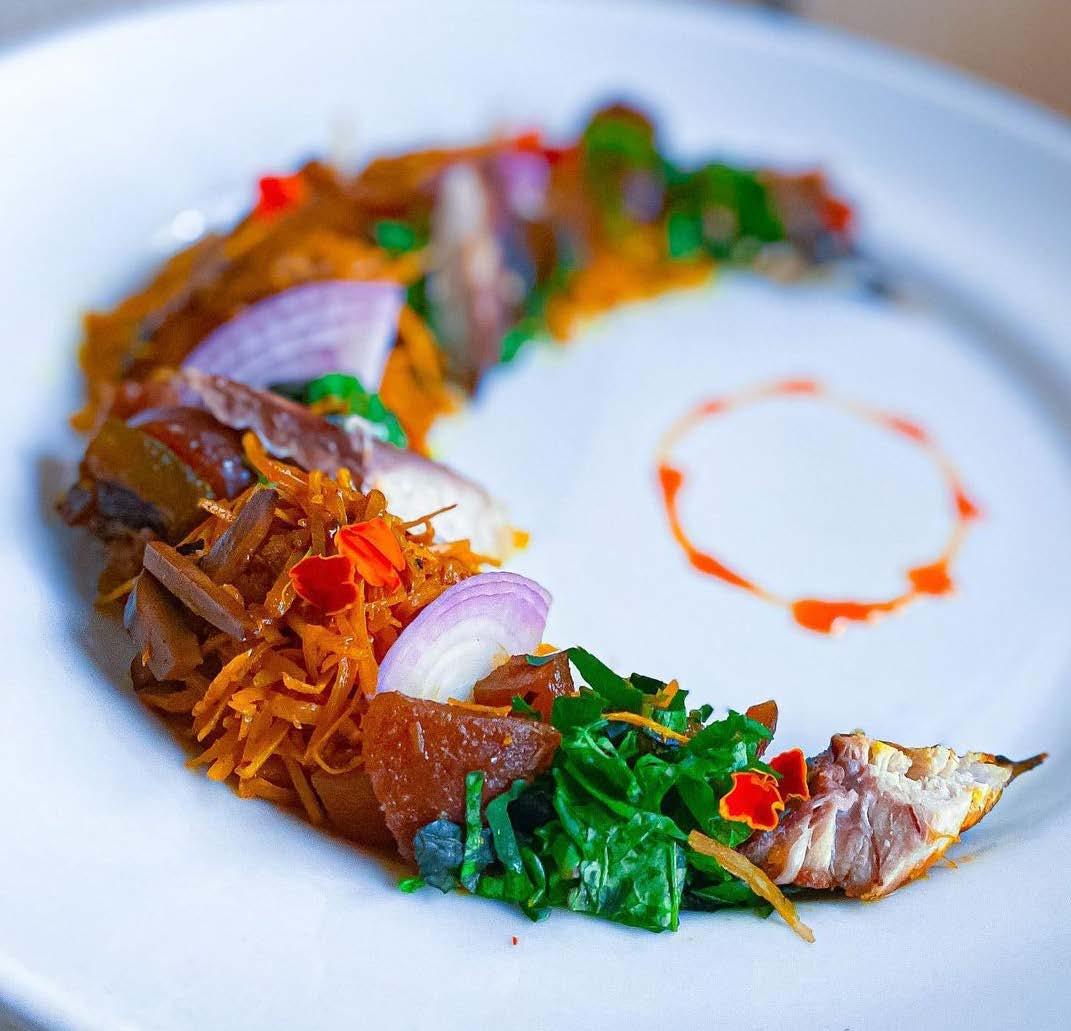 Amala And Ewedu With Gbegiri by @chef_christiee
Efo Riro And Eba Served With Snails by @chef_christiee
Grilled Sawa, Fried Yam And Isiewu Sauce by @thecheflin
Moimoi and Garri
Pap And Milk Served With Akara by @chef_christiee
Pounded Yam And Oha Soup by @chef_christiee
Tuwon Shinkafa With Groundnut Soup and Oven-Baked Tilapia by @chef_christiee
Yam Served With Mackerel Fish And Pepper Sauce by @chef_christiee
Abacha AKA African Salad by @thecheflin
Amala And Ewedu With Gbegiri by @chef_christiee
Efo Riro And Eba Served With Snails by @chef_christiee
Grilled Sawa, Fried Yam And Isiewu Sauce by @thecheflin
Moimoi and Garri
Pap And Milk Served With Akara by @chef_christiee
Pounded Yam And Oha Soup by @chef_christiee
Tuwon Shinkafa With Groundnut Soup and Oven-Baked Tilapia by @chef_christiee
Yam Served With Mackerel Fish And Pepper Sauce by @chef_christiee
Abacha AKA African Salad by @thecheflin
VOL 2 NO. 40 • OCTOBER 02 - OCTOBER 08, 2022 PAGE 14 THEWILL DOWNTOWN • www.thewilldowntown.com DOWNTOWN
THE SCENE DOWNTOWN
HER NETWORK
Hosts First Annual Summit: The Power CommunityOf
BY ONAH NWACHUKWU
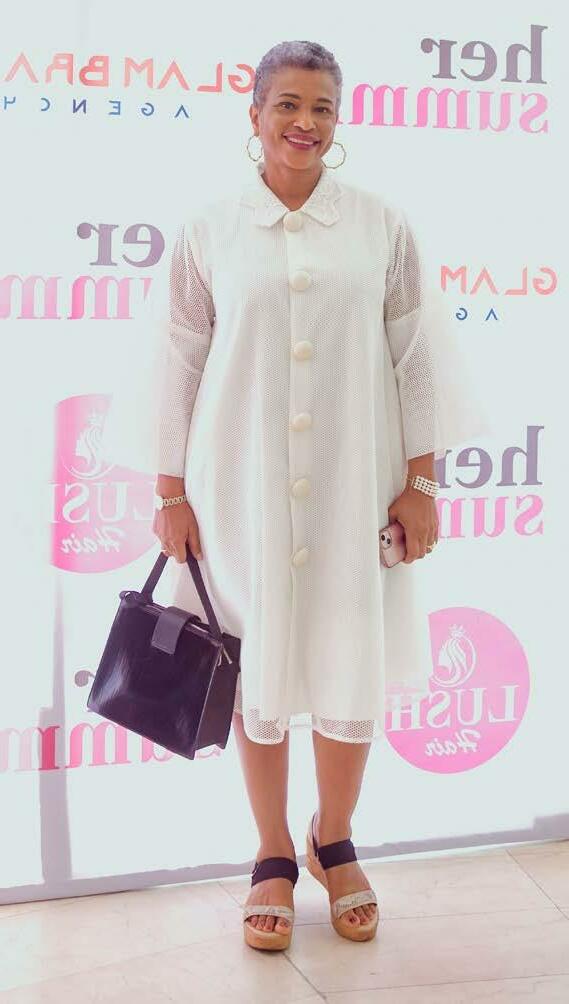
first-ever Her Summit, presented by the global inspirational and lifestyle platform Her Network, brought together women of all professional levels for an interactive and networking experience.
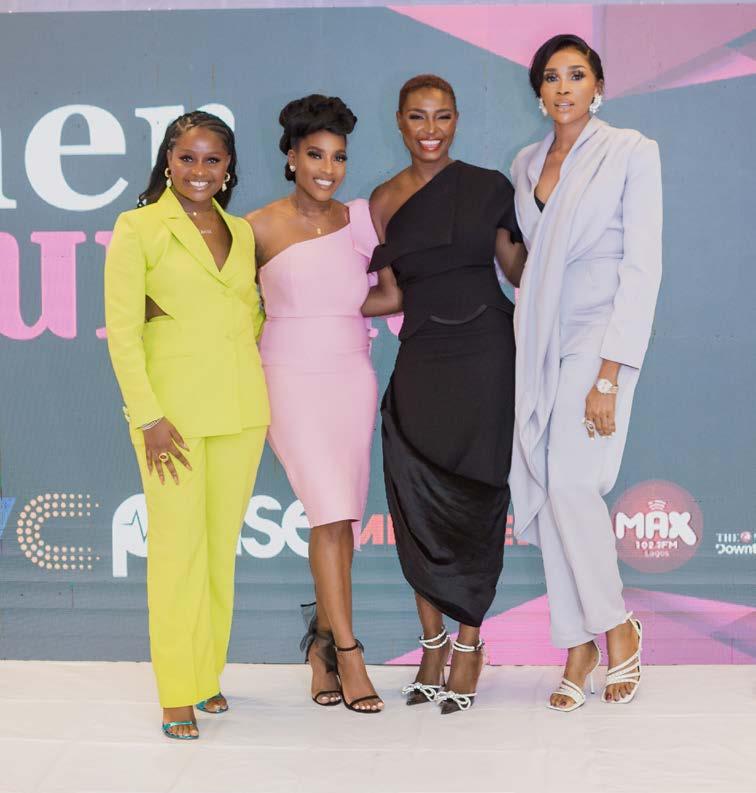
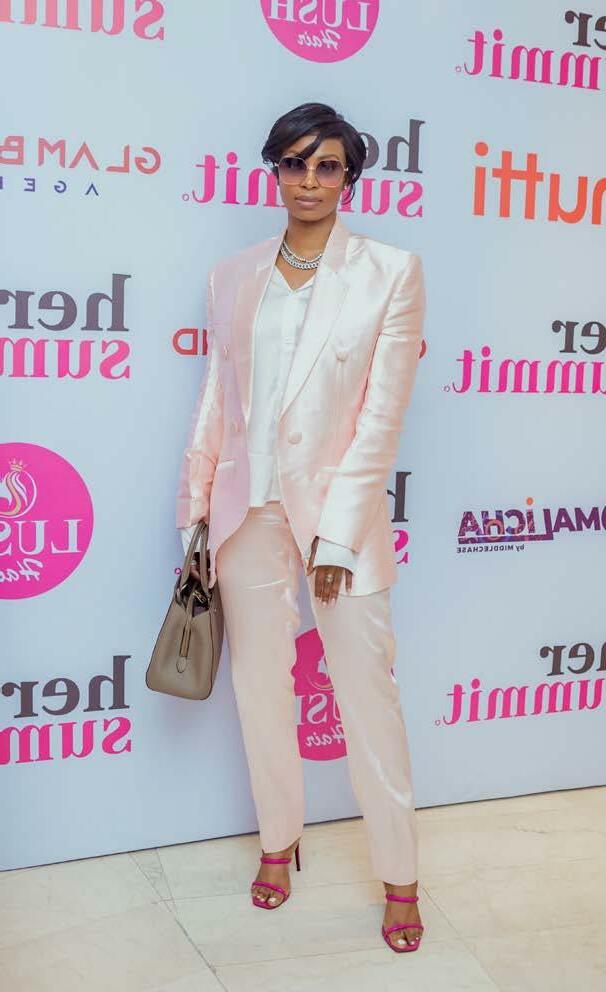
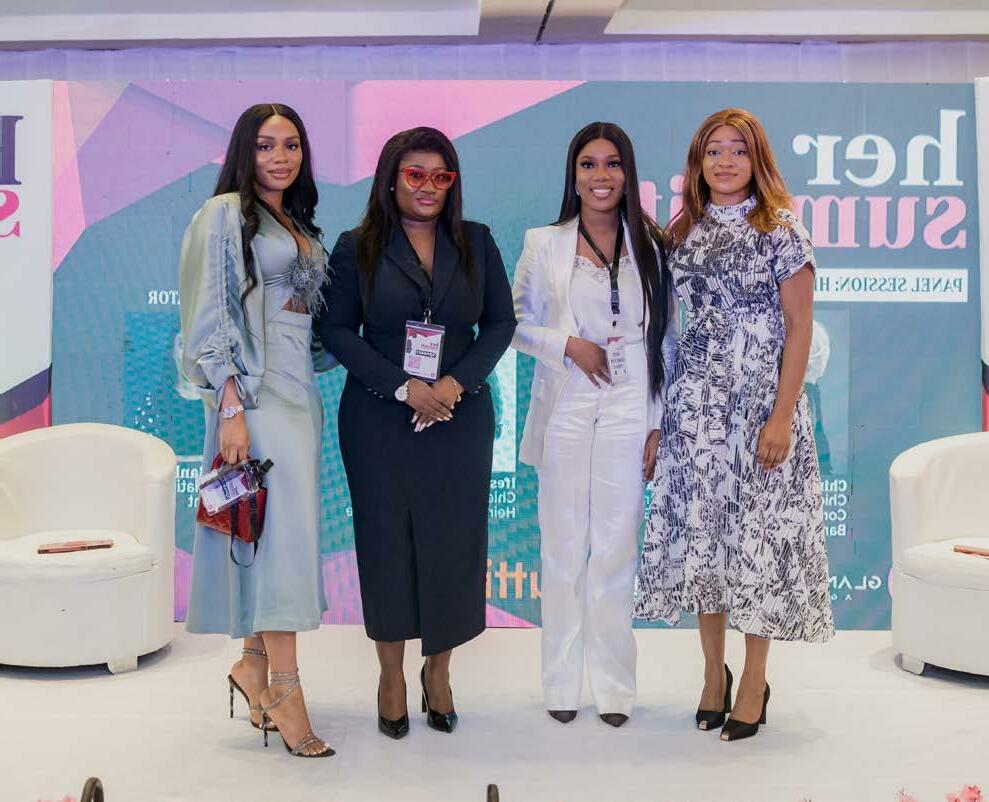
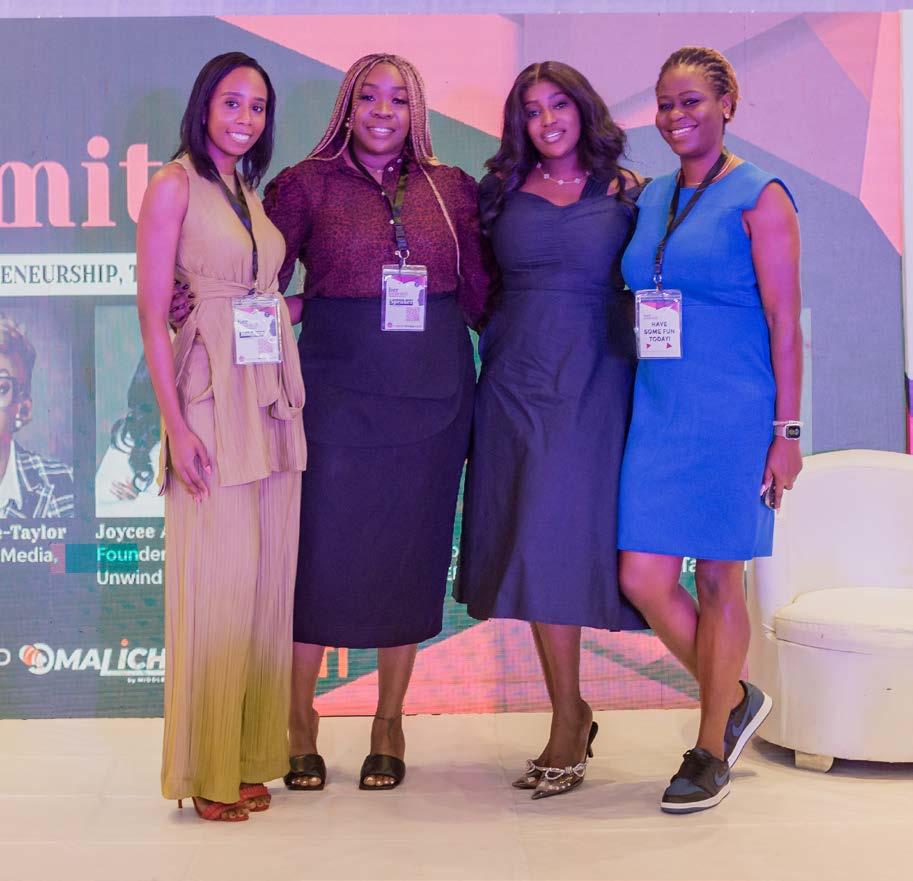
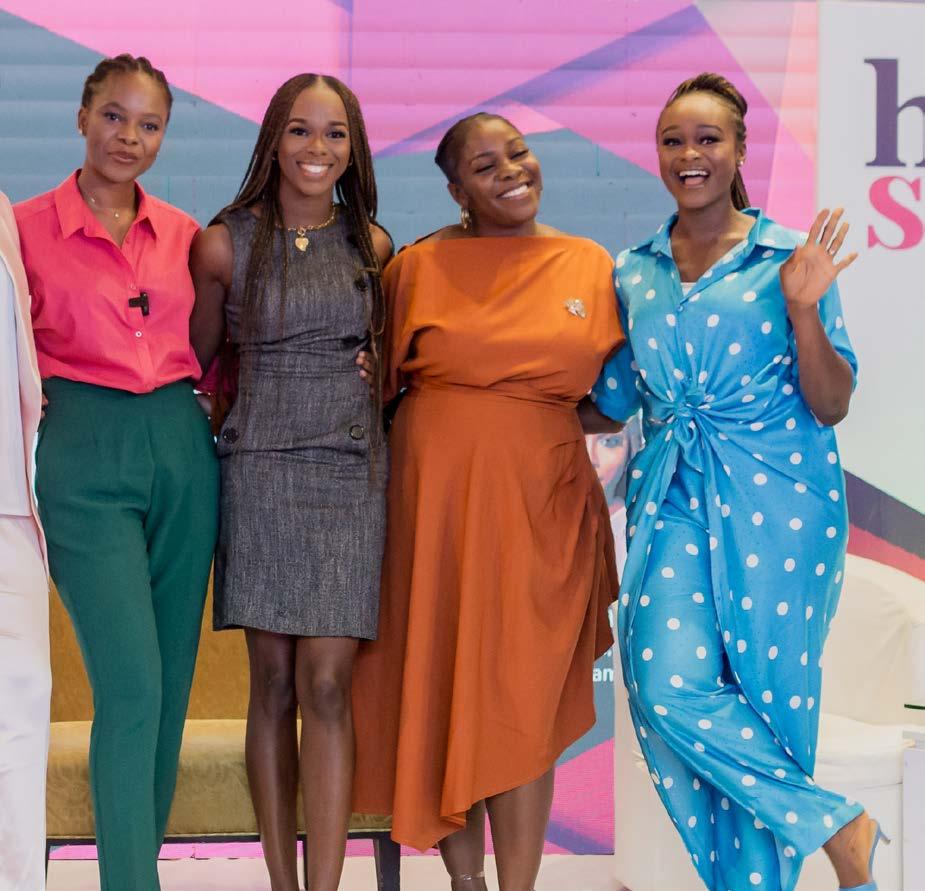
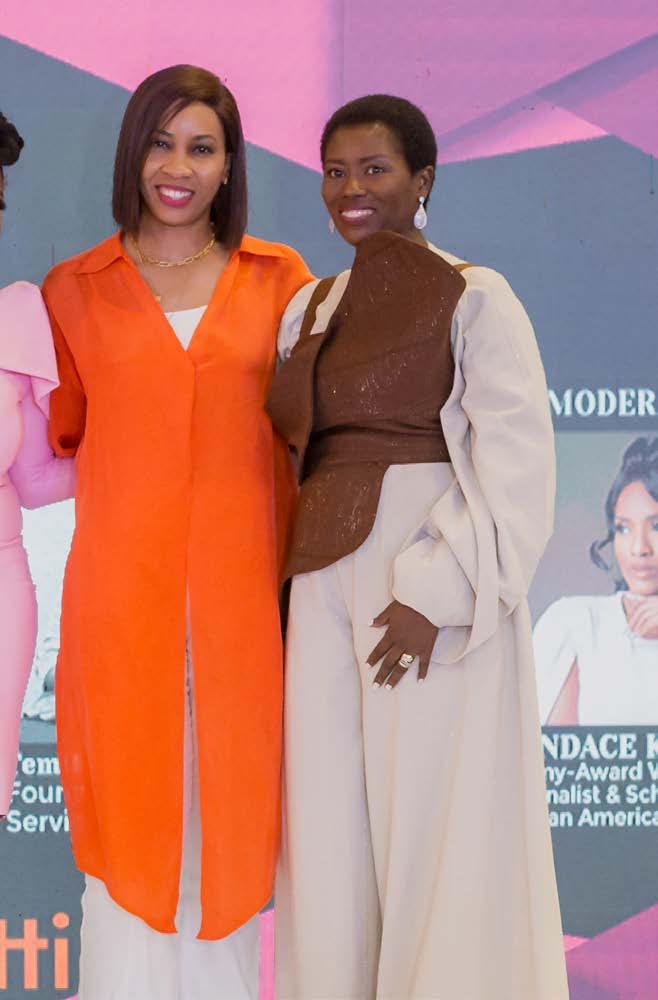
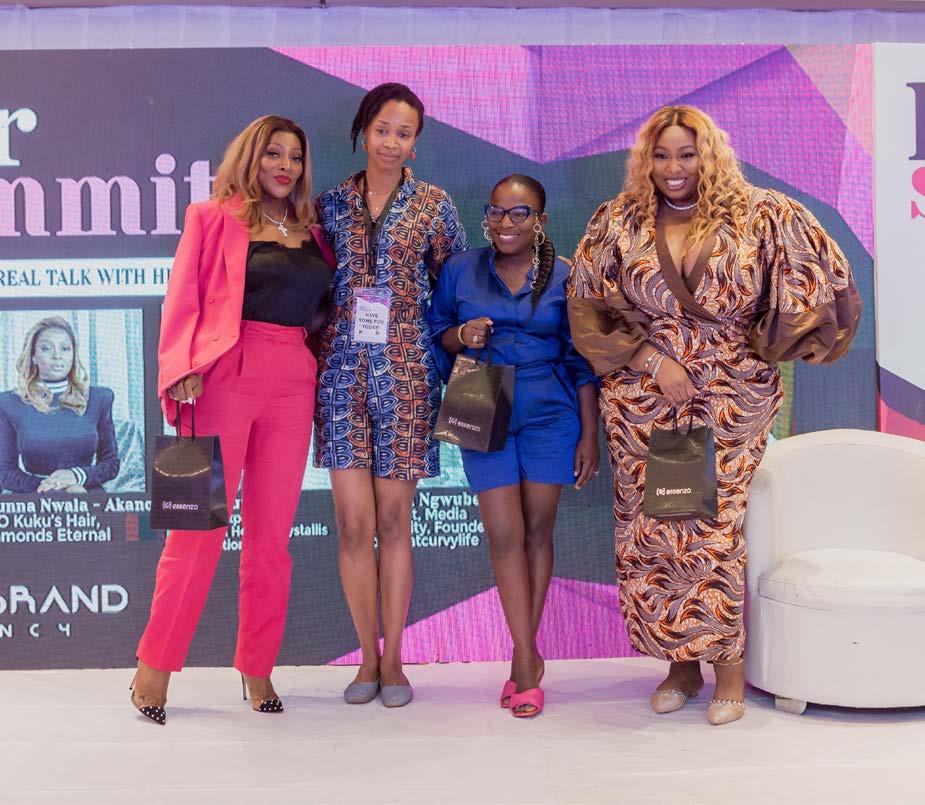
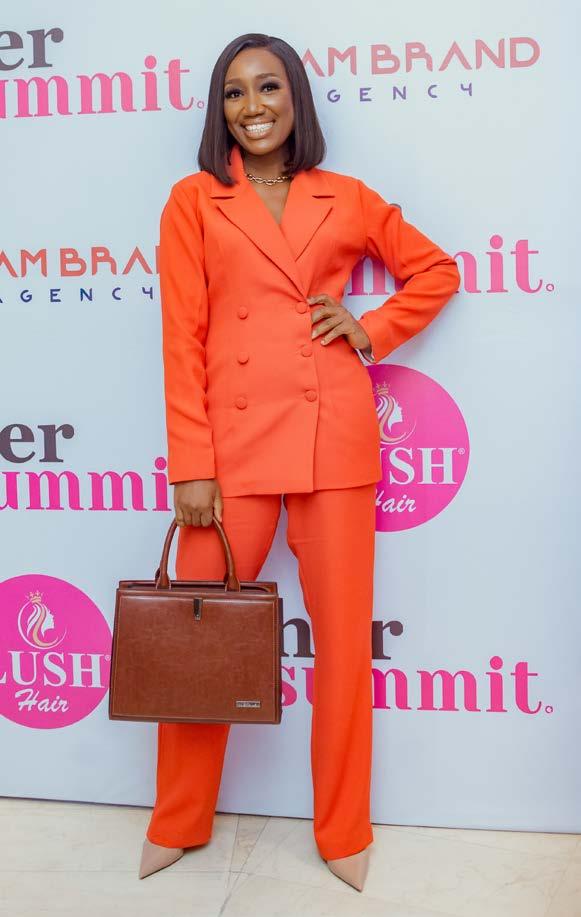
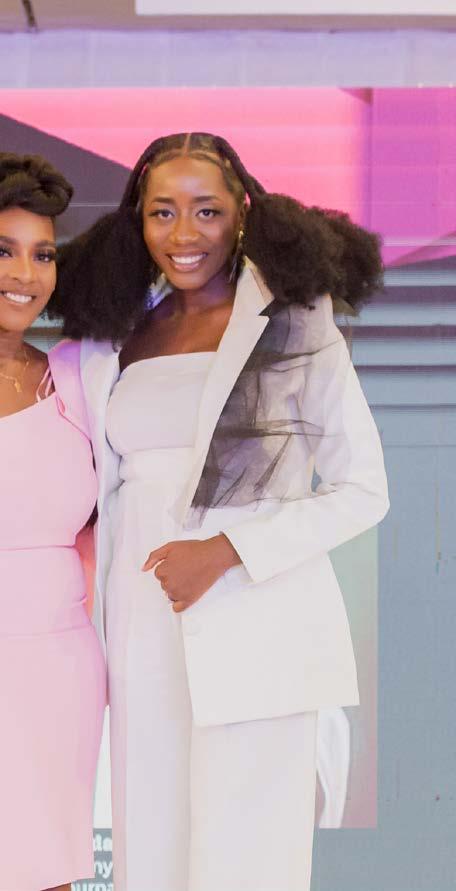
The
Captured in every panel session was the summit’s theme — ‘The Power of Community.’ Each session saw a diverse set of experienced female professionals who have led admirable careers and built sustainable businesses share their impact stories with attendees, touching on areas like entrepreneurship, technology and inclusion.
In her introduction speech, the founder of Her Network, Nkem Onwudiwe, talked about the inspiration behind the summit, emphasising the power of a community consisting of the right people with the right values, same goals, and motives.
Multidisciplinary marketing consultant and author, Izin Akioya, whose eloquence, poise and constant words of affirmation kept guests vibrant and engaged, hosted the summit. Attendees were later entertained by Singer and Songwriter, Kaline.
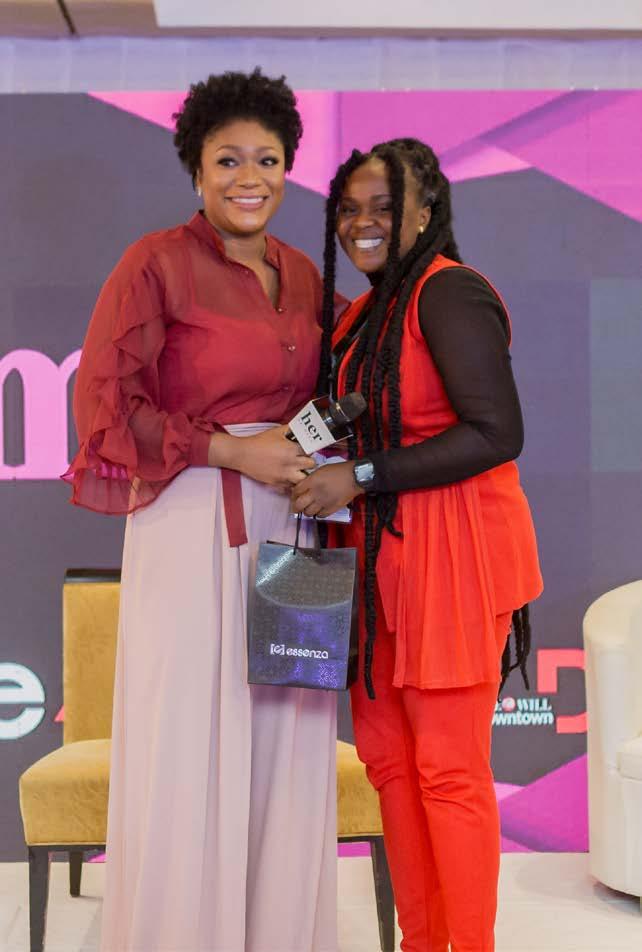
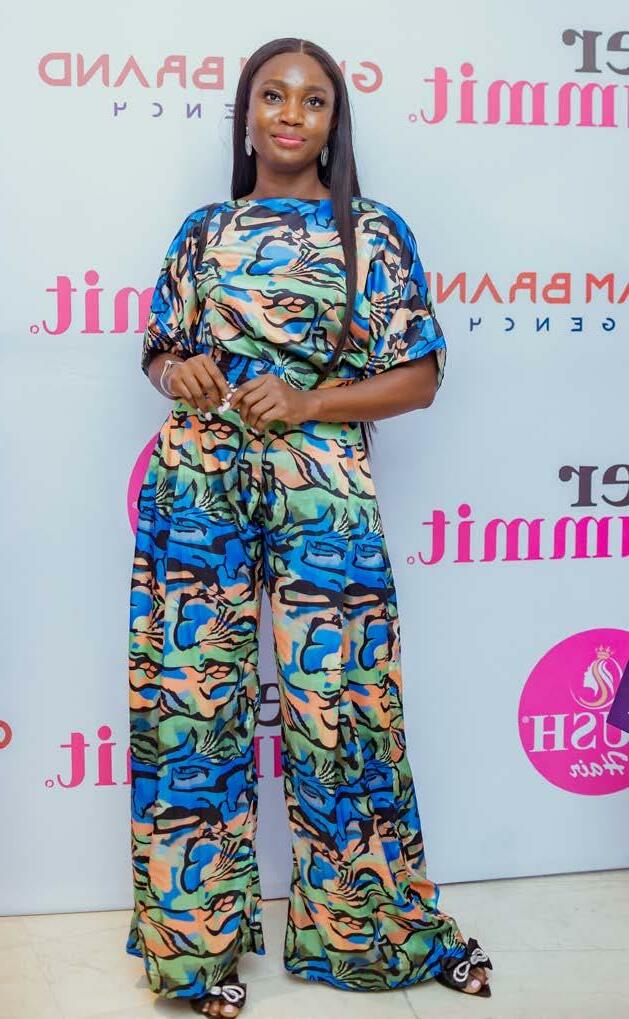
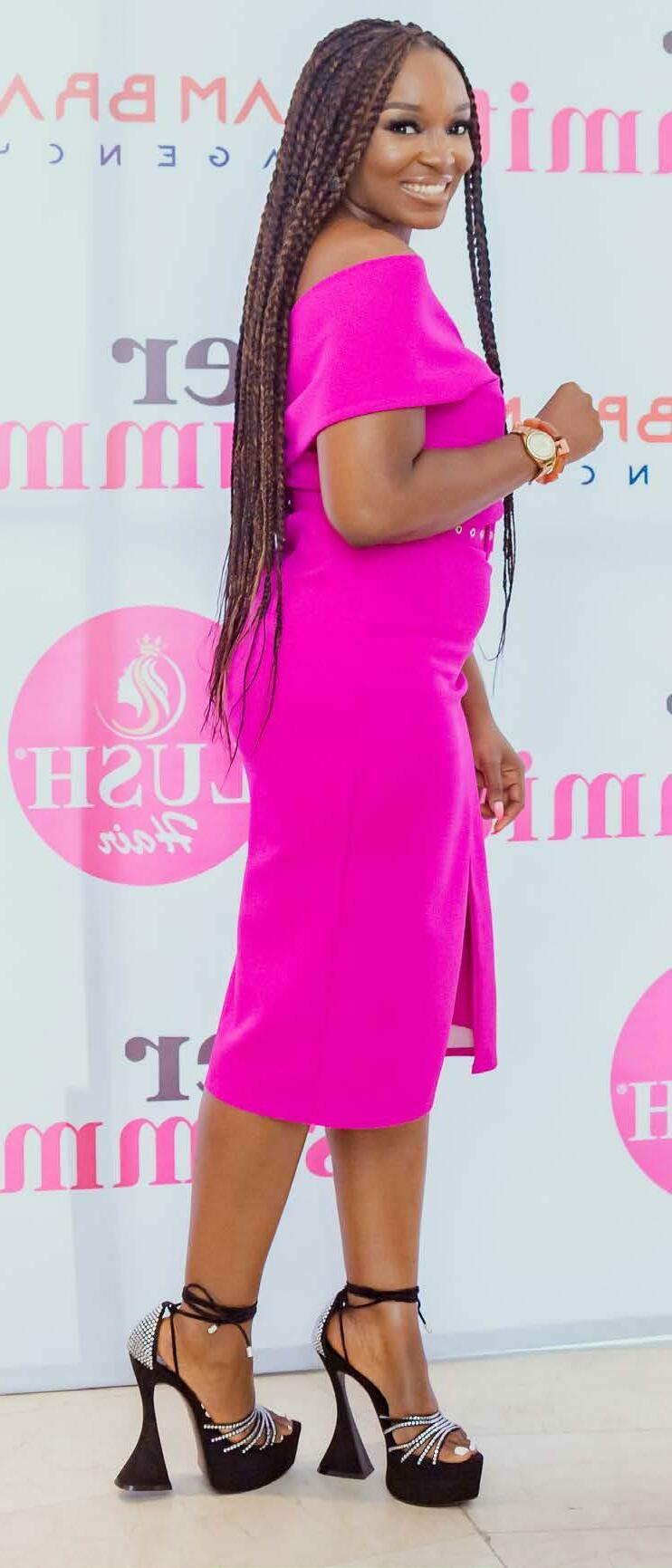 Kaline Izin Akioya
Nkem Onwudiwe, Founder Her
Temilola Adepetun
Emelda Remi
Akunna Nwala-Akano, Aderonke Adeola, Kemi Ogunleye & Latasha Ngwube
Pearl Uzokwe & Bunmi Adeniba
Zainab Balogun Nwachukwu, AmandaOsikilo, Ujama Akpata & KikelomoFola-Ogunniya
Folake Edun, Bukky Gorge-Taylor, Joycee Awosika & Tobi Olanihun Olanihun
Ifesinachi Okpagu, Oyinda Bankole, Chinwe Egwim & Neya Kalu
Bolanle Olukanni
Bola Balogun
Anita Adetoye, Candace King, IfedayoAgoro & Dr Beatrice Nwalie
Kaline Izin Akioya
Nkem Onwudiwe, Founder Her
Temilola Adepetun
Emelda Remi
Akunna Nwala-Akano, Aderonke Adeola, Kemi Ogunleye & Latasha Ngwube
Pearl Uzokwe & Bunmi Adeniba
Zainab Balogun Nwachukwu, AmandaOsikilo, Ujama Akpata & KikelomoFola-Ogunniya
Folake Edun, Bukky Gorge-Taylor, Joycee Awosika & Tobi Olanihun Olanihun
Ifesinachi Okpagu, Oyinda Bankole, Chinwe Egwim & Neya Kalu
Bolanle Olukanni
Bola Balogun
Anita Adetoye, Candace King, IfedayoAgoro & Dr Beatrice Nwalie
PAGE 15 THEWILL DOWNTOWN • www.thewilldowntown.com VOL 2 NO. 40 • OCTOBER 02 - OCTOBER 08, 2022
